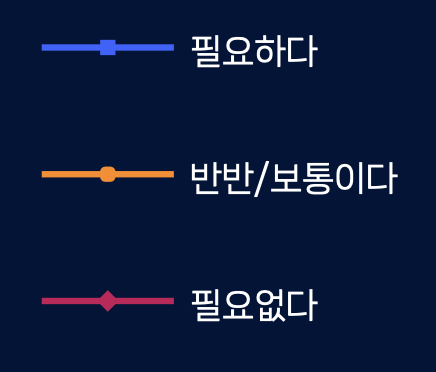The 10 Year Survey Analysis of North Korean Defectors
[Video]
[행사 내용]
- The North Korean People’s Consciousness Survey has been conducted since 2008, and the North Korean Social Change Survey has been conducted by the Institute for Unification and Peace in 2012 on North Korean defectors.
- This presentation is divided into 10-year data from King Jon-Un’s reign: the North Korean Residents’ Consciousness Survey (sessions 1-2; 9:30-14:55) and North Korean Social Change (sessioins 3-4; 14:55-18:00)
- Professor Jung-Chul Lee from the Department of Political Science and Diplomacy at Seoul National University hosted the presentations which analyzed the key components of the data. The 1st and 2nd part of the session, Kim Jong-Un’s 10 years in power and the North Korean People’s Consciousness Survey, the presentation will analyze the △ Unification Perception, △ South Korean Perception, △ North Korean System Perception, △ International Perception, △ In-Depth Analysis – North Korean Economic Failure Perception, and △ Survey of North Korean Defector Conditions in South Korea.
The panelists following the first session of the presentation include: Professor Won-Taek Kang of the Department of Political Science and Diplomacy at Seoul National University, Jang-ho Choi, a researcher at the Institute for Foreign Economic Policy, Professor Woo-Young Lee, from the graduate school at the University of North Korean Studies, Professor Jung-Hoon Han, a professor at Seoul National University, and Professor Hyun-Jin Song from Ewha Womens University’s Institute of Unification.
Ο Unification Perception, Professor Hak-Jae Kim (IPUS)
- The perception of unification from North Korean defectors are very high compared to South Korean society driven by a combination of factors including ethnic unity and idealistic expectations for an improved quality of life.
- Military and political variables have a greater impact on the legitmiacy of the system than economic variables (economic failure, marketplace, etc.).
- In the case of North Korea’s Jangmadang Saedae (Marketplace Generation) — with high market exposure and high informal income — unification itself is negative, but it is favorable to inter-Korean exchanges and cooperation.
Ο South Korean Perception, Professor Won-Joon Song (Department of Political Science and Diplomacy at Hanyang University)
- North Koreans overwhelmingly regard South Korea as a target of cooperation, but the lower the level of education, the more experienced the business, and the more likely the party members are to want South Korea as a target of hostility.
- The higher the level of education and the more men are aware of major political and social events in South Korea.
- In the case of encountering South Korean culture, familiarity with South Korea is also high, but in the case of party members, it is rather reduced.
- Reflecting on the improved inter-Korean relations since 2017, the possibility of South Korea’s armed provocation is gradually lowered
- More than half of North Koreans are aware of South Korea’s aid to North Korea, and many say the scale of aid to North Korea should be increased.
Ο North Korean System Perception, Professor Byoung-Lo Kim (IPUS)
- Over the past decade, Kim Jong-un’s approval rating averaged 63.7 percent, with 59.4 saying they were proud of Juche ideology, while 58.2 percent of the residents criticized their leaders and the government.
- Political approval has continued to increase since Kim Jong-un took power, peaking in 2018 but with an apparent decline since 2019, while trust in social and economic institutions have been declining since 2016.
- The level of interaction and engagement with South Korea is consistently identified as a variable that influences the domestic criticism of the North Korean regime.
Ο International Perception, Professor Dong-Joon Cho (Seoul National University Department of Political Science and Foreign Affairs)
- The impending threat from neighboring countries: South Korea, Japan, China, US, and Russia, certainly influences the viewpoint of the North Korean sentiment.
- The higher the frequency of contact with Korean culture, the less threatened they feel towards democratic nations while feeling increasingly more threatened by China.
- Unlike the pattern seen towards other countries, the demographic perception towards the United States revealed that women considered the US a higher threat relative to their male counterpart.
- The level of education or party membership of the North Korean defectors do not influence their perception on neighboring countries.
- The younger the generation, the weaker the intimacy with Korea and the stronger the intimacy with China.
Ο In-Depth Analysis — Assessment of North Korean Economic Failure, Professor Dong-Joon Cho (Seoul National University Department of Political Science and Foreign Affairs)
- North Korean defectors tend to perceive internal factors as the cause of the North Korean economic downturn rather than external factors.
- However, among the internal causes, the proportion of Kim Jong-un’s transgressions are decreasing, while the prooportion of excessive military expenditures are increasing.
Ο Survey of North Korean Defector Conditions in South Korea, Eun-Young Choi (IPUS)
- Twenty percent of North Korean defectors said they were not satisfied with their lives in the South, and said they were particularly troubled by cultural differences and economic barriers.
- Suprisingly, 18.59 percent of the respondents said they regretted moving to the South, namely due to social prejudice and longing for their families and hometowns in the North.
- As for the policy to support North Korean defectors, more than 87 percent of the respondents said they were satisfied, but the satisfaction level is decreasing with the 10-year trend.
ㅁ In sessions 3-4, hosted by Professor Jung-Chul Lee (Seoul National University’s Department of Political Science and Diplomacy), the presentation will cover North Korean Social Change from 2012-2020 △ Necessities of Life (food, clothing, shelter, etc.) and Accessibility to Information Technology, △ Economic Income and Expenditure, △ Health Care, △ Stanards of Education, △ In-Depth Analysis: Impact of Sanctions against North Korea on the lives of its residents.
Ο Necessities of Life (food, clothing, shelter, etc.) and Accessibility to Information Technology, Eun-Mi Jeong, Research Fellow (Korea Institute for National Unification)
- The quality of food, clothing and shelter life of North Koreans has improved quantitatively and qualitatively throughout the 10 years of Kim Jong-un’s rule.
- Clothing consumption in North Korea has continued to increase, and the access to information and communication devices such as mobile phones and computers has also increased.
- The impact of sanctions on North Korea on the conditions of North Koreans’ accessibility to food, clothing, and shelter is relatively limited.
- The income gap between classes has narrowed during Kim Jong-un’s 10 years in power, and the income level of the middle class has increased rapidly.
Ο Economic Income and Expenditure, Jong-Min Lee, Associate Researcher (Bank of Korea)
- It can be evaluated that the standard of living of North Koreans during the Kim Jong-un era had improved considerably before sanctions against North Korea were strengthened.
- It is estimated that the latest intensity of sanctions against North Korea have somewhat worsened the economic living conditions of residents.
- Factors that expand foreign trade and marketization lay an important role in the development of the living standard gap of residents.
- The income inequality in North Korea is ranked among the highest in the world, and the gap between the rich and the poor has widened significantly since the progress of marketization.
Ο Health Care, Professor Sang-Min Park (Seoul National University College of Medicine) and visiting Professo Hye-Won Lee (Yonsei University College of Medicine)
- North Korea’s health care system is experiencing the spread of a black market due to chronic lack of health care finances, which leads to self-diagnosis-self treatment behavior of North Koreans.
- Although North Korea’s socialist medical system is operating limitedly in the area of vaccination and infectious disease prevention, the medical system is very vulnerable to chronic or non-infectious diseases that require continuous long-term management.
Ο Standards of Education for the New Generation, Yoo-Yeon Kim, Ph.D. Candidate, (Department of Education at Seoul National University)
- The higher the level of education, the more business experience, and the higher possibility of experiencing private education.
- These attributable factors play a major role in entering the elite (or higher social) class in an environment where public investment in education is insufficient.
- The number one factor for entering the top middle schools is academic performance while the number one factor for entering the top universities is the wealth and economic power of the parents.
Ο In-Depth Analysis — Impact of Sanctions against North Korea on the lives of its residents, WOn-Jun Song (Hanyang University Department of Political Science and Diplomacy)
- In the consumption and expenditure structure, it is concluded that sanctions against North Korea have little influence and reveals insignificant changes in income sources.
- Increased sanctions do not seem to affect the North Korean people’s perception of the North Korean regime and the economy
- People with high meat consumption and food expenditure view Kim Jong-un negatively, but those with high cultural expenditure view Kim Jong-un positively. Those who are licensed by Kim Jong-un to do busines overseas view him positivel, while those who choose to engage in foreign trade without government approval tend to view the need for reunification negatively.
[Poster]
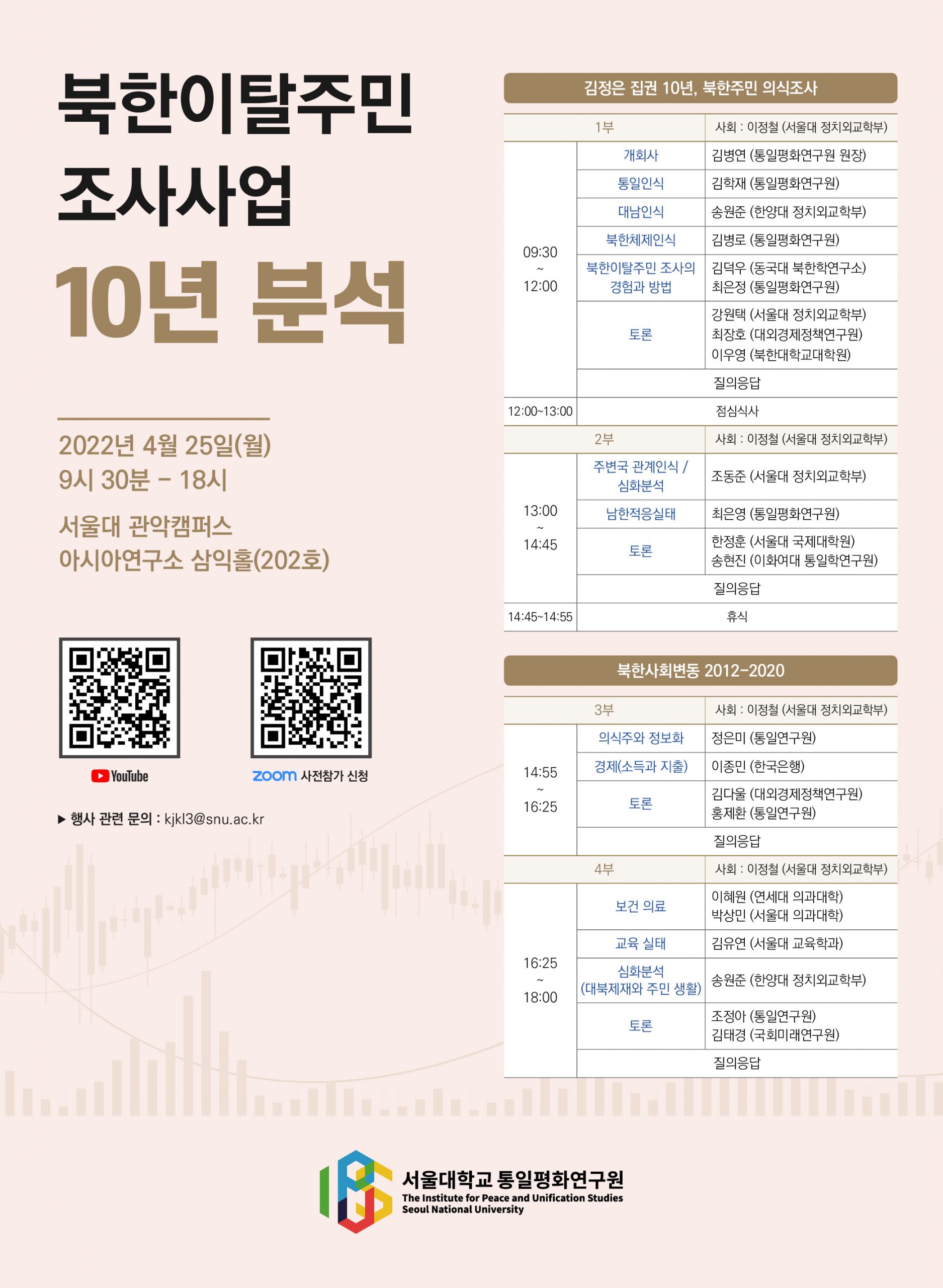
[Photos]
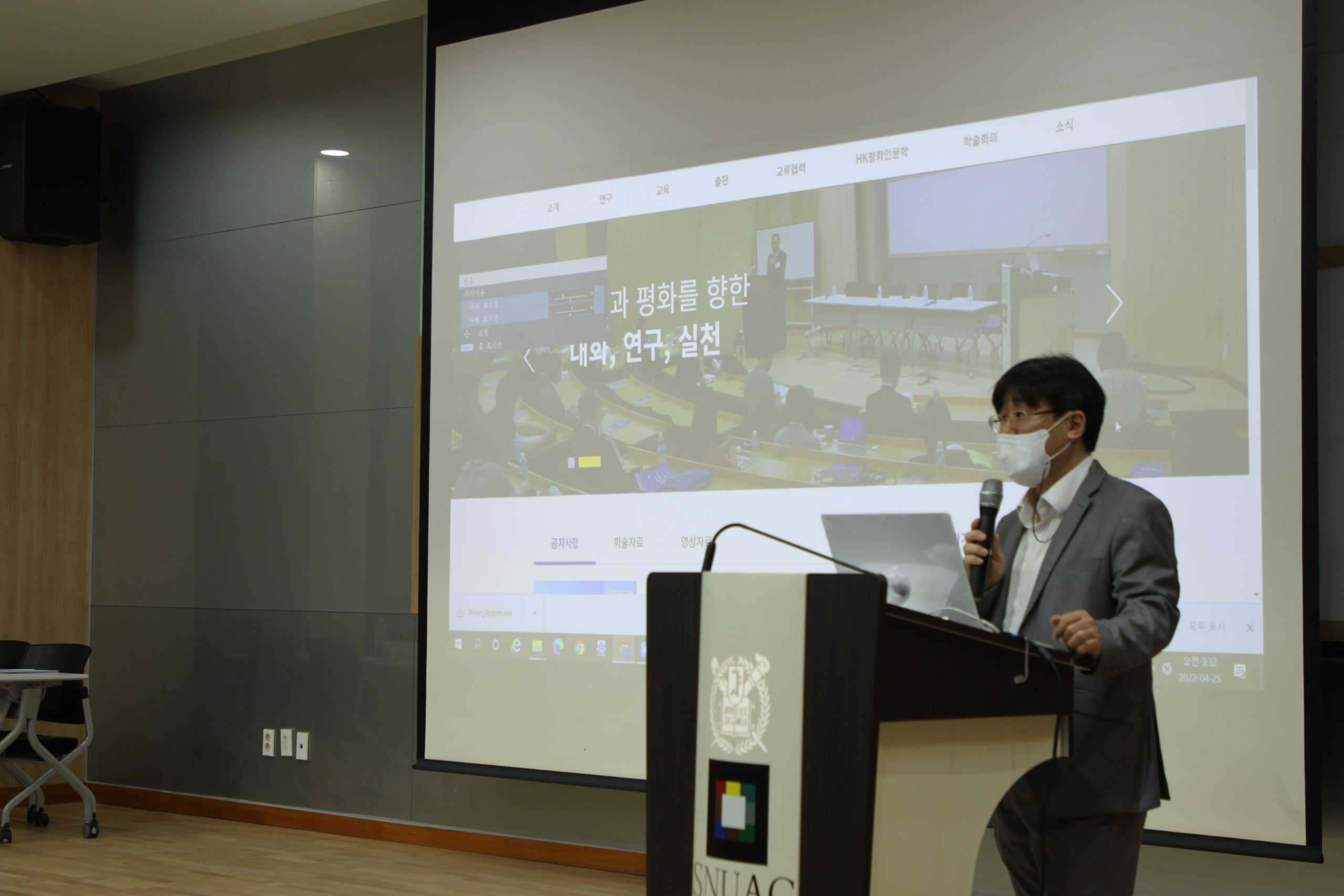
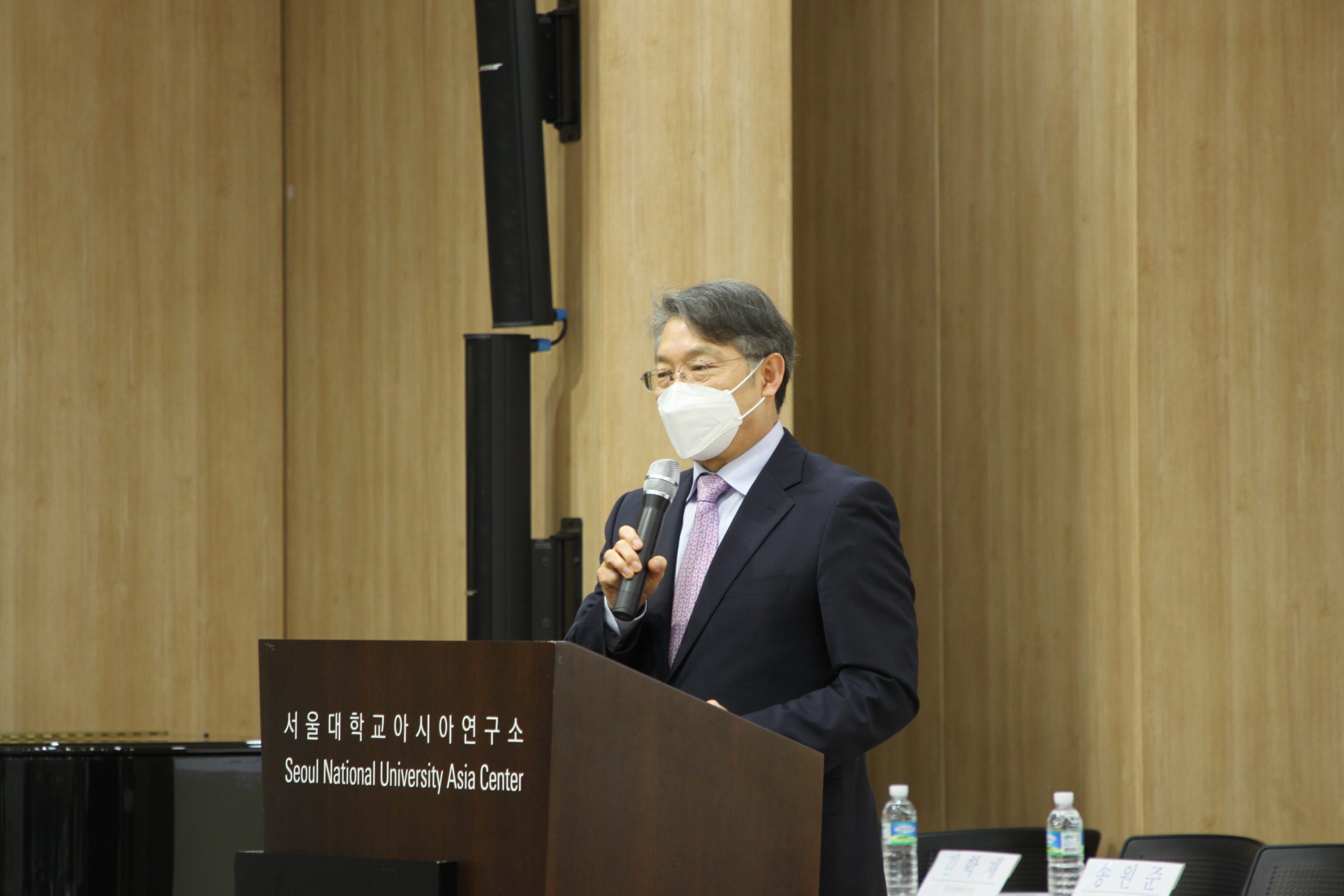
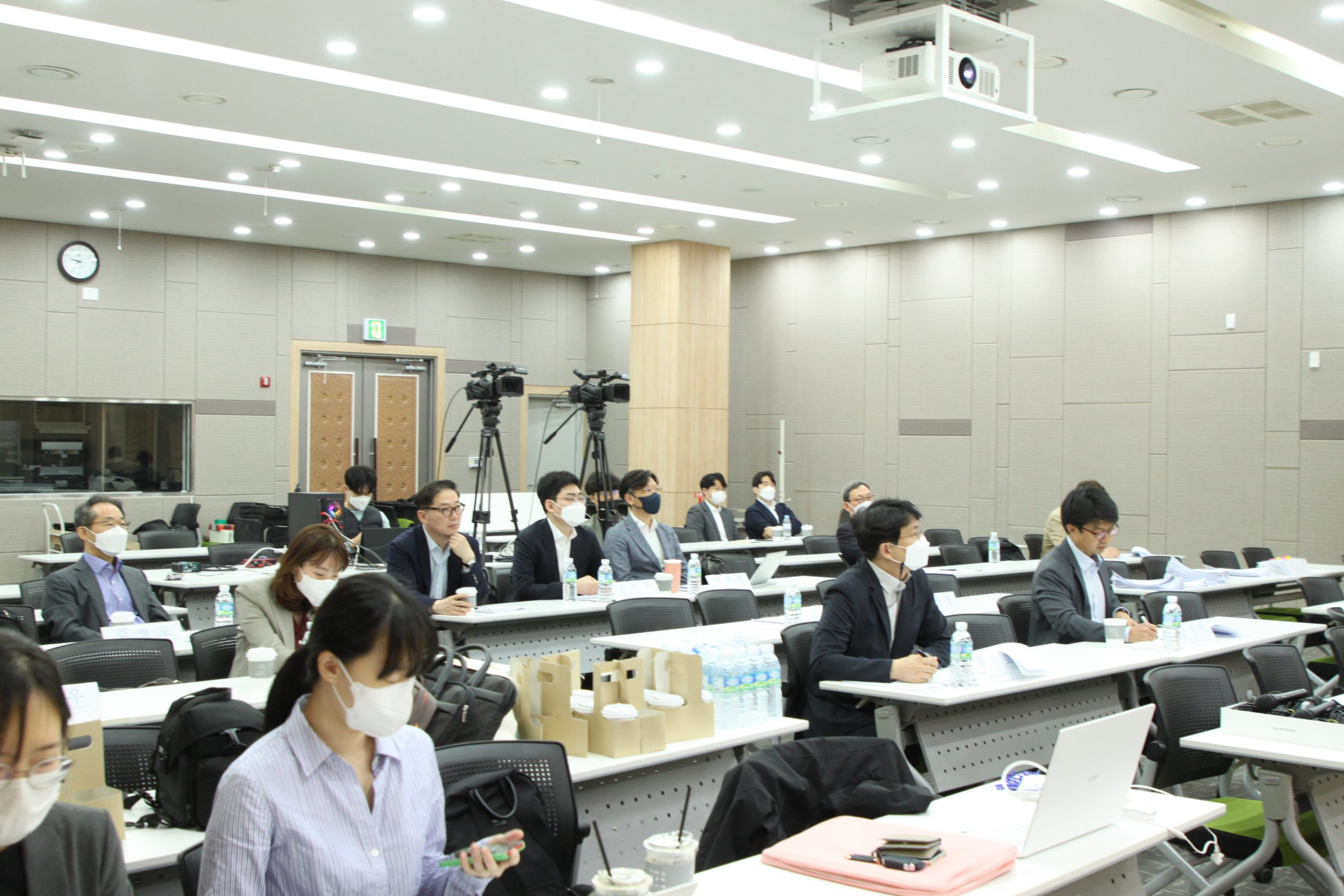
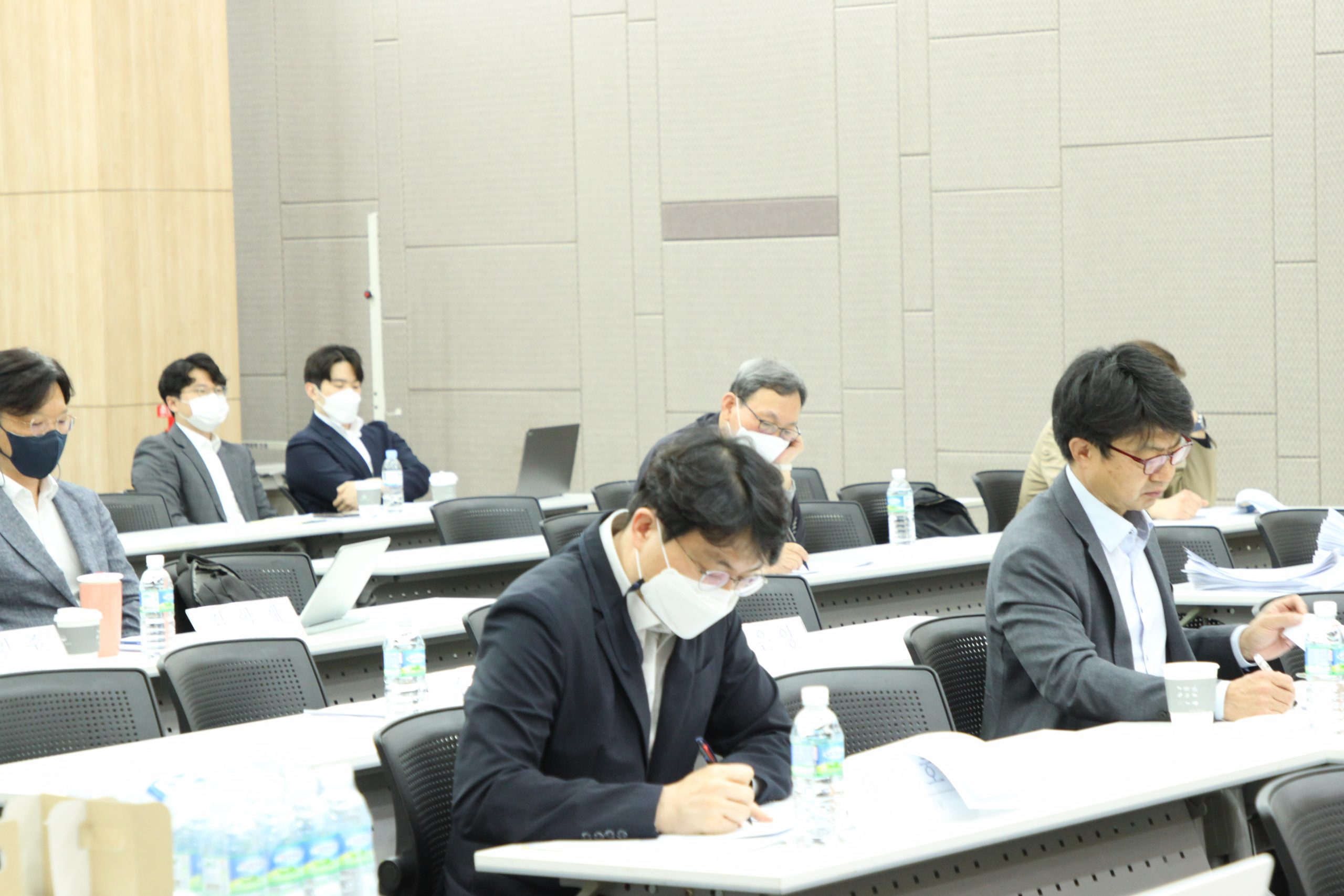
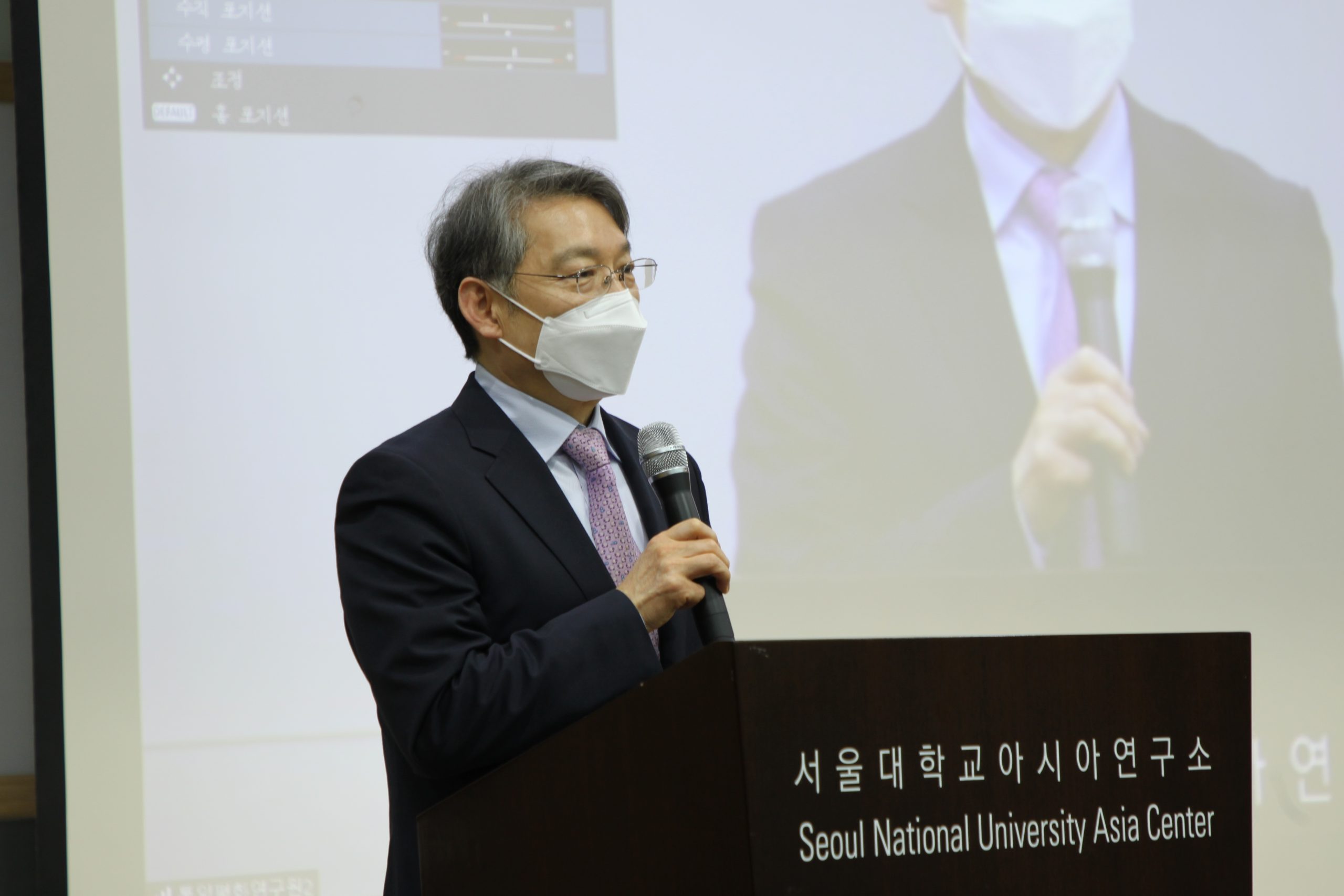
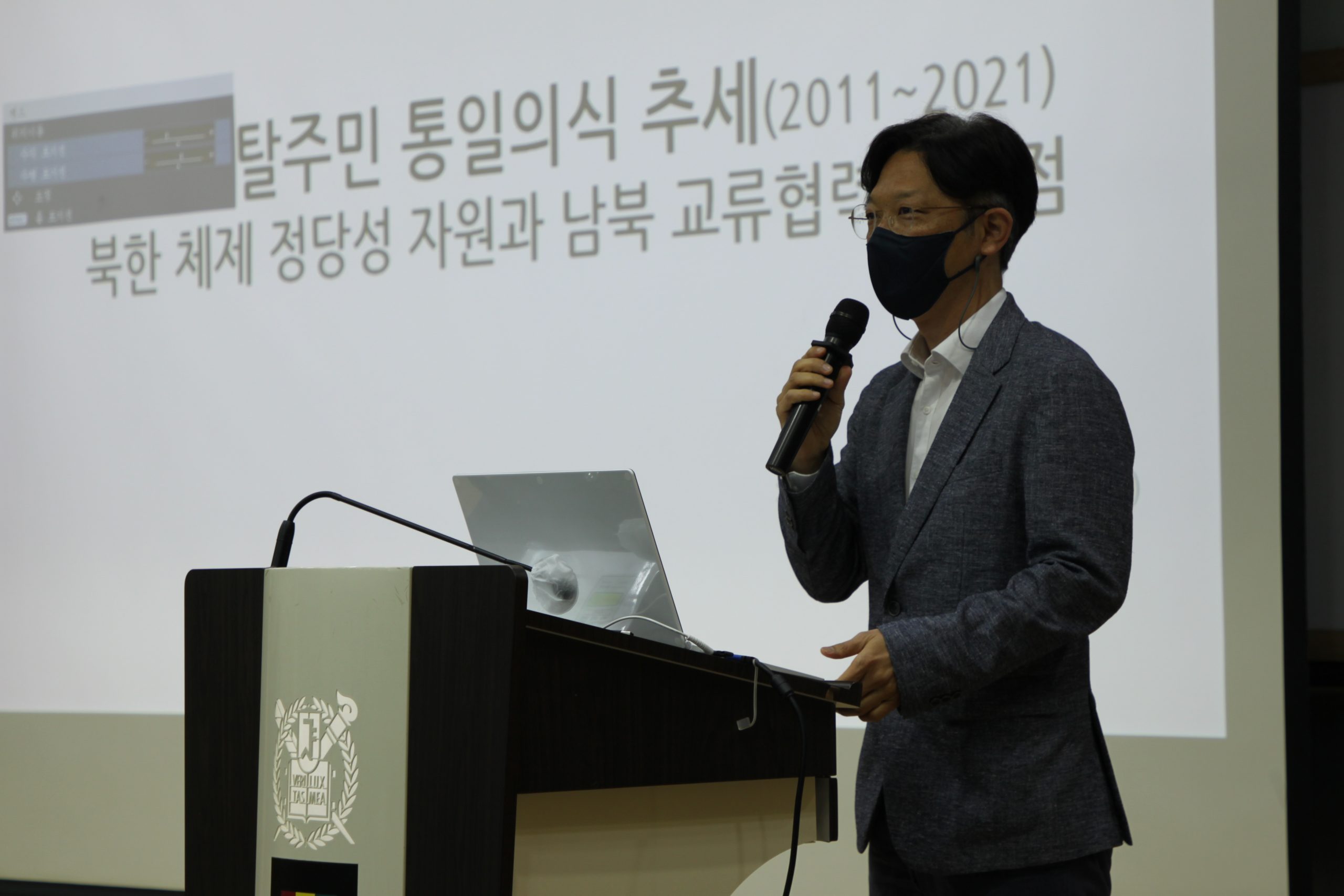
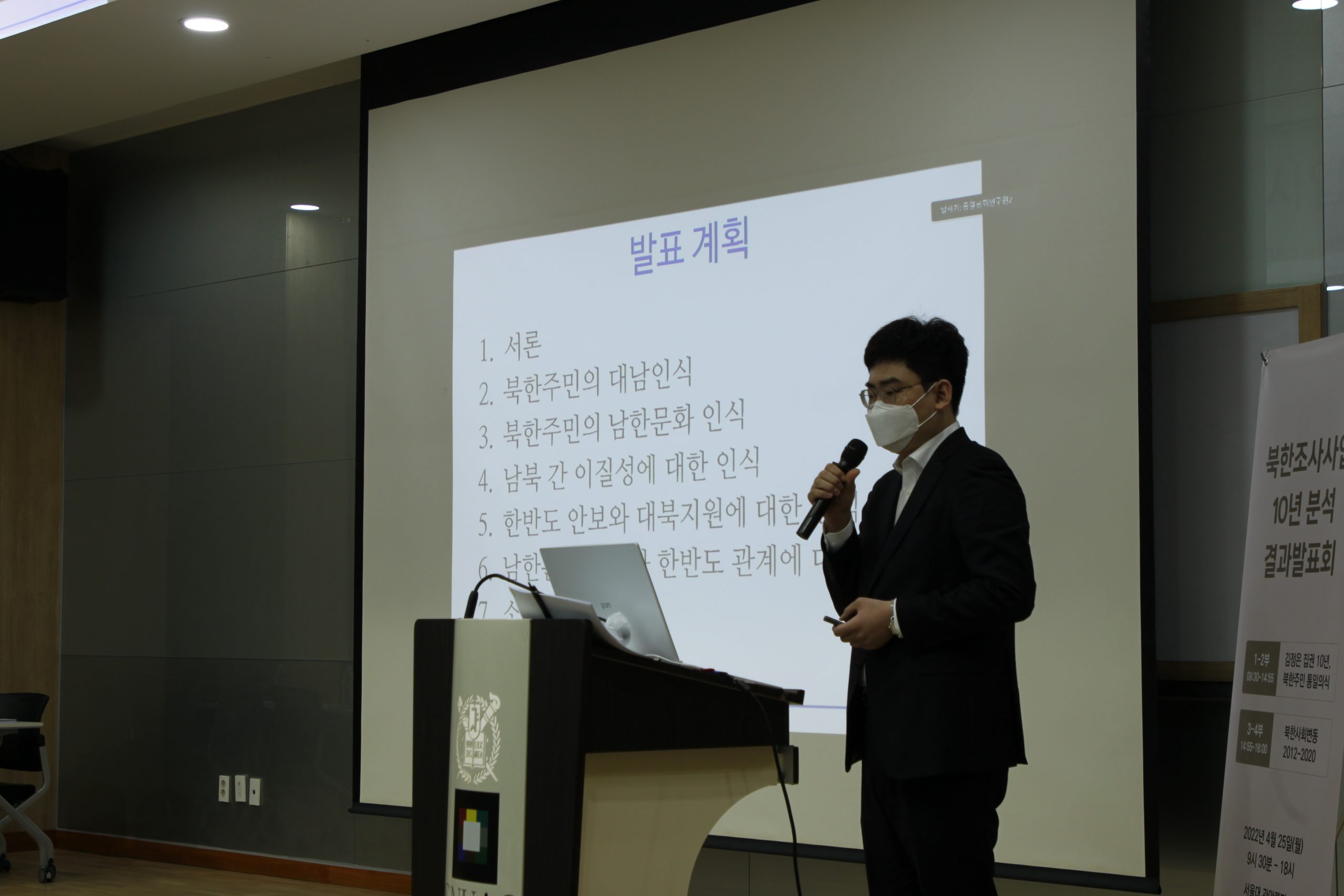
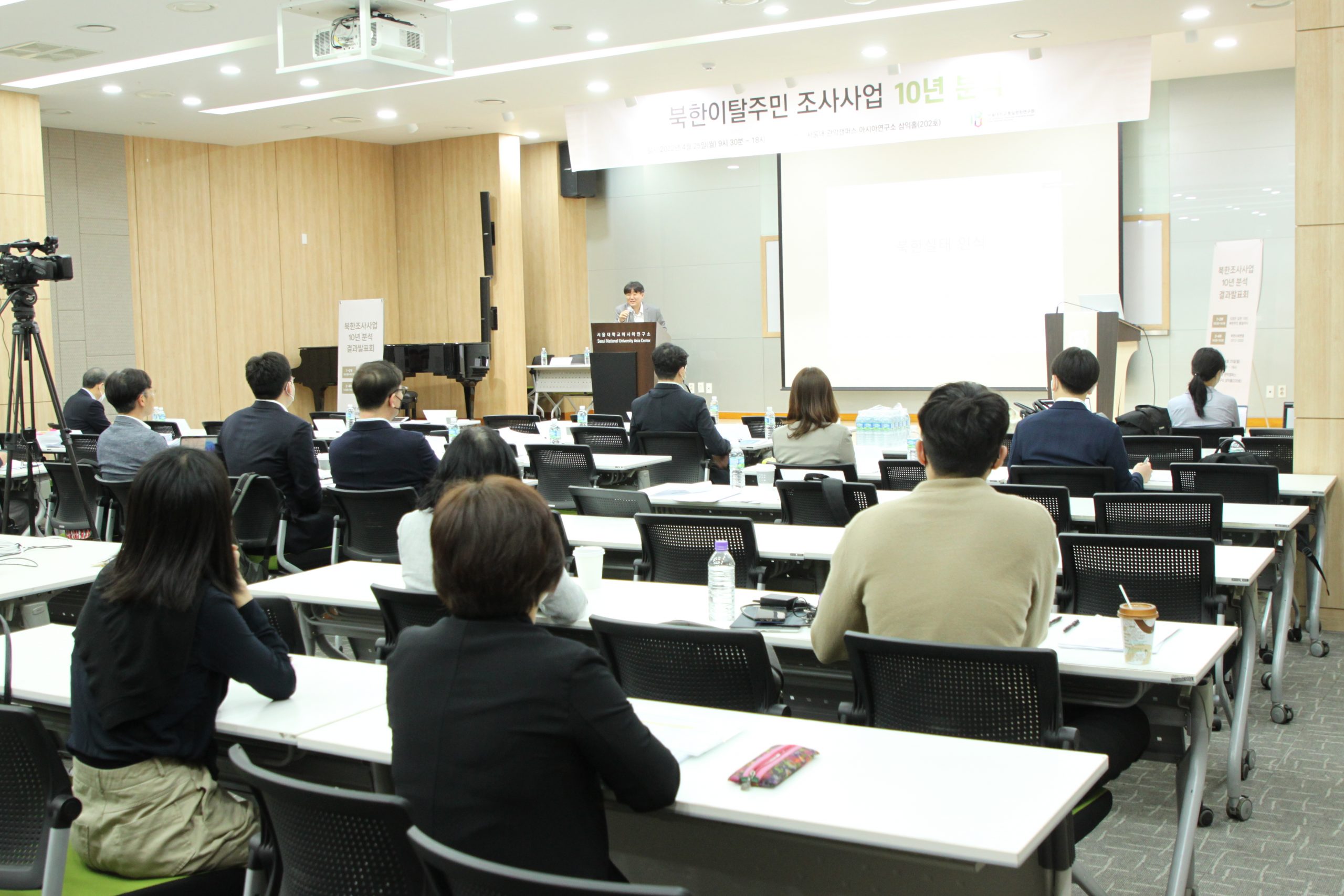
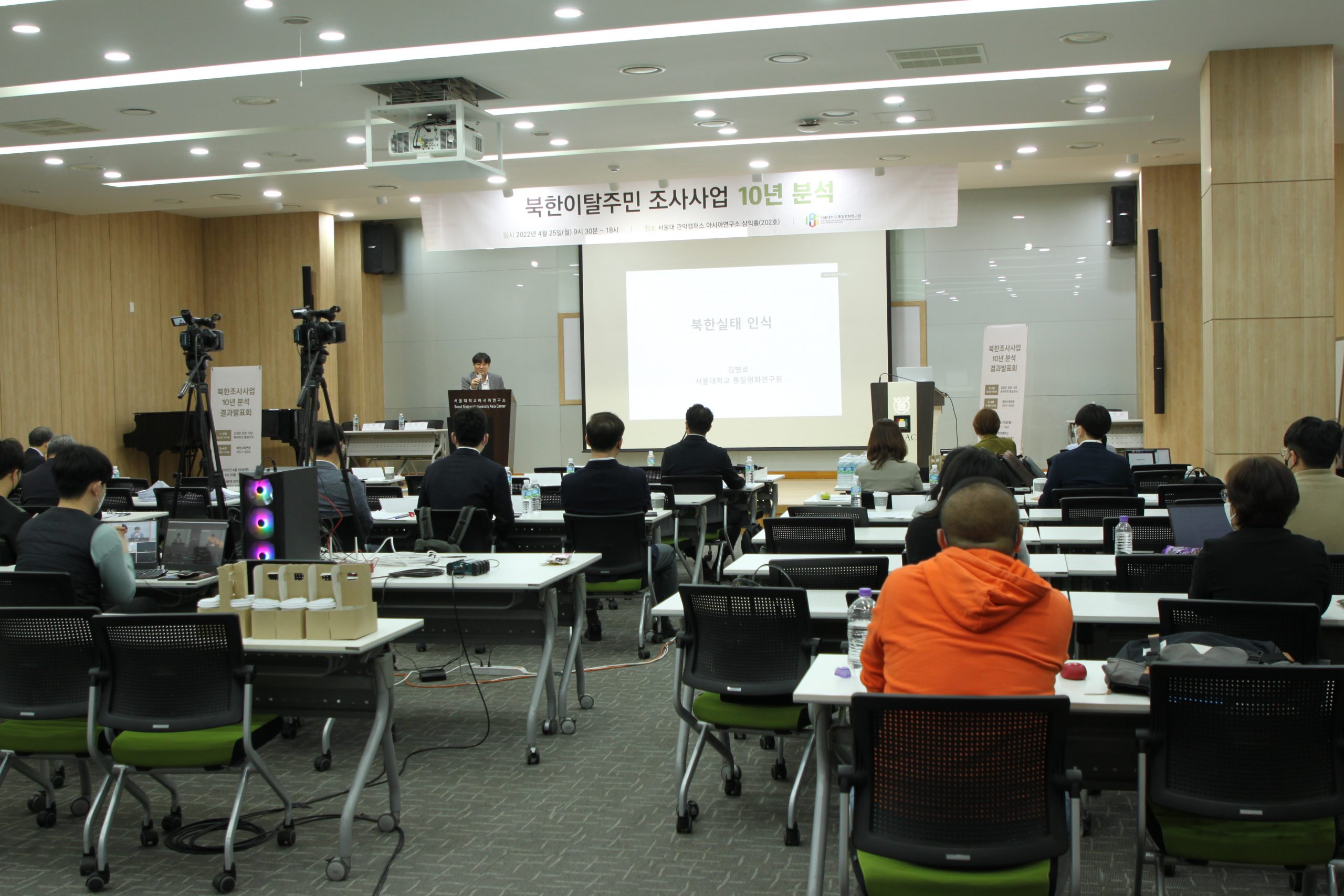
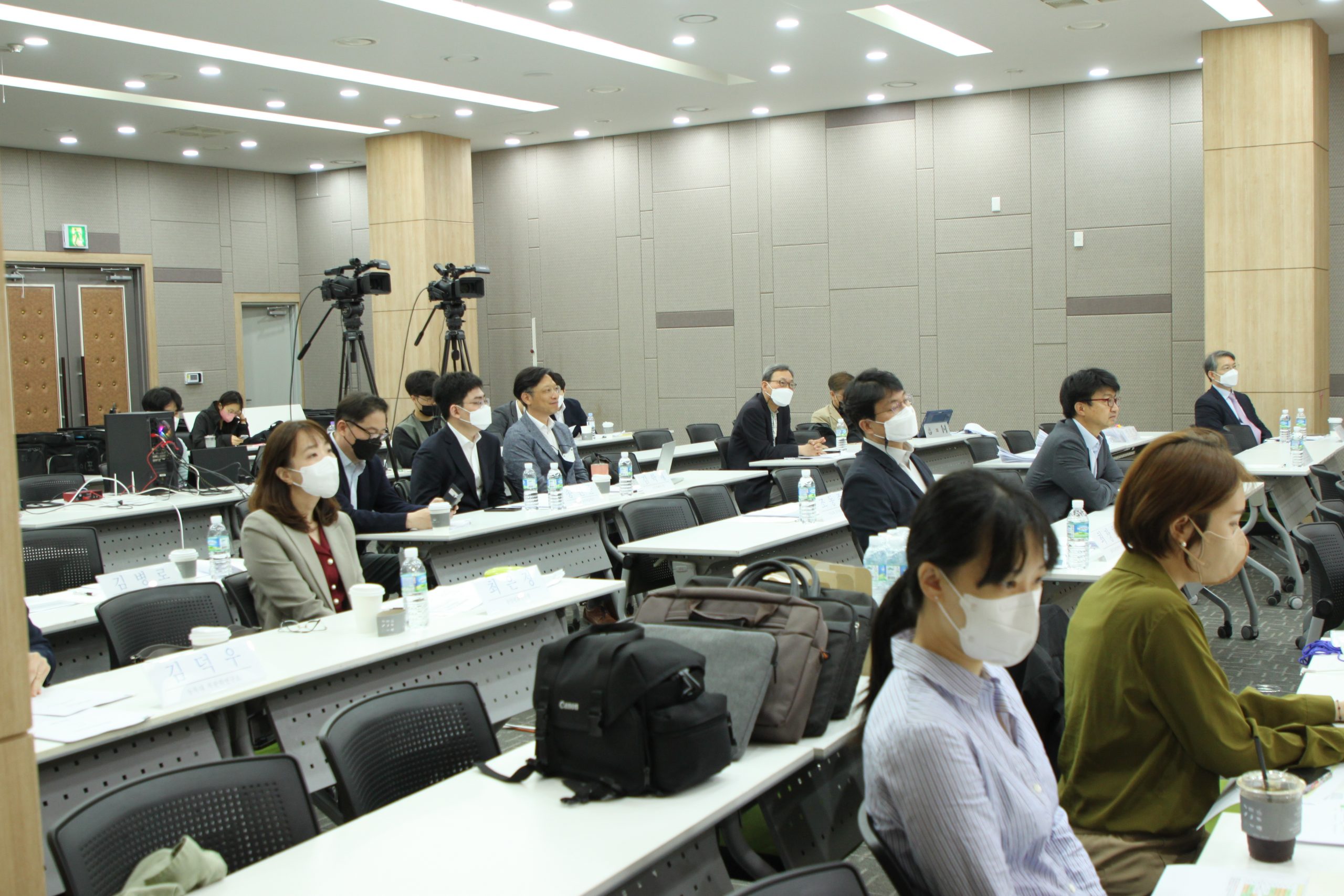
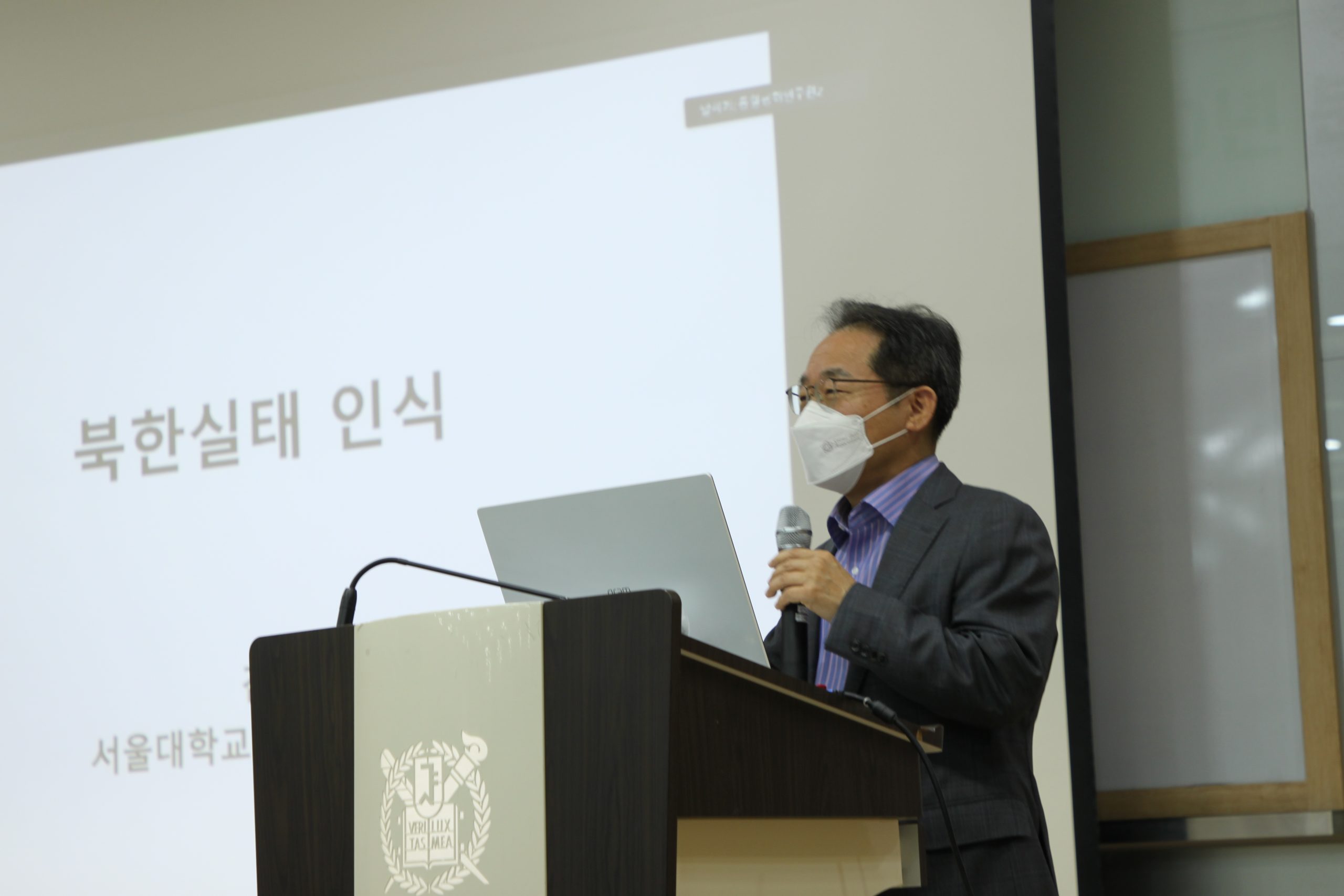
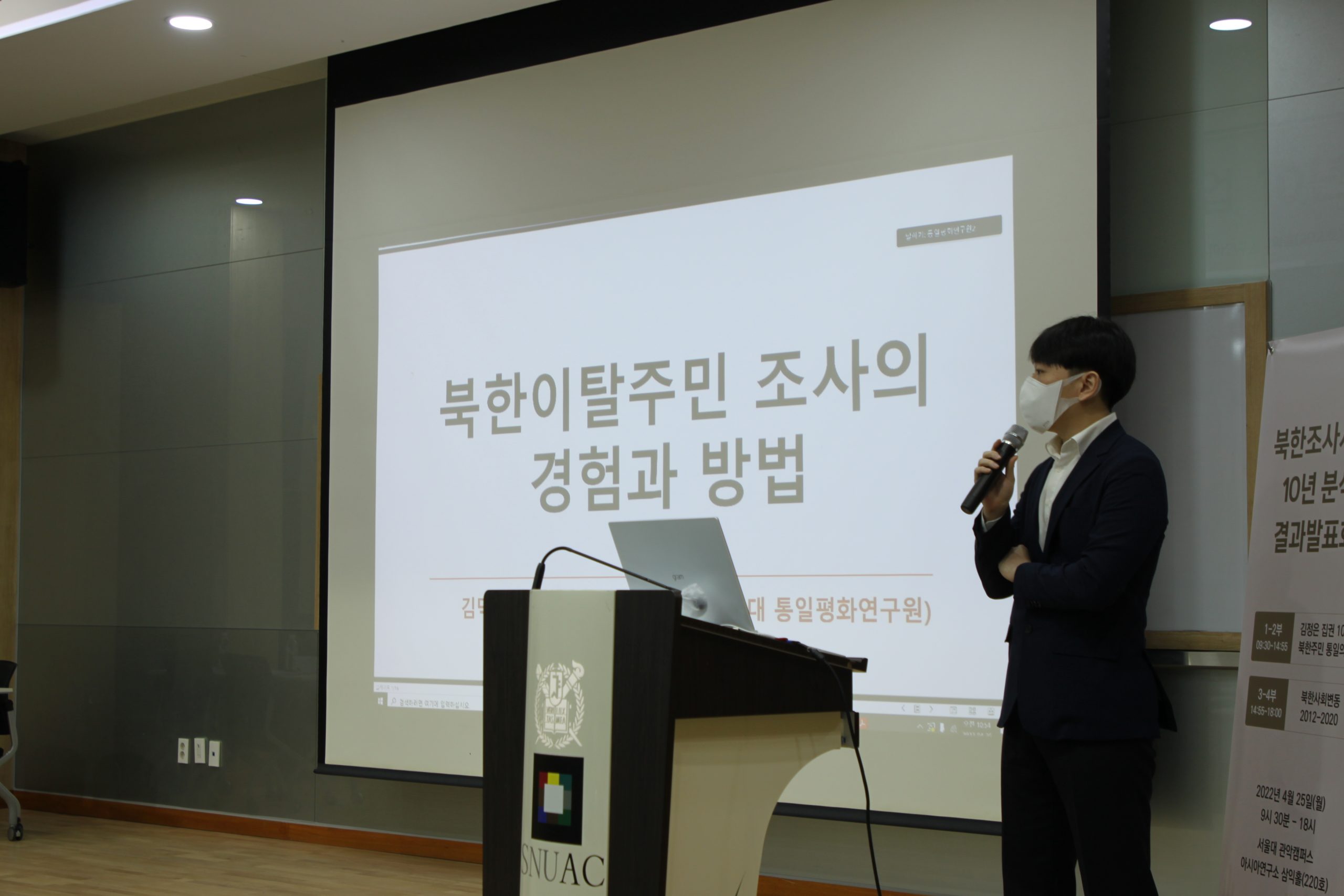
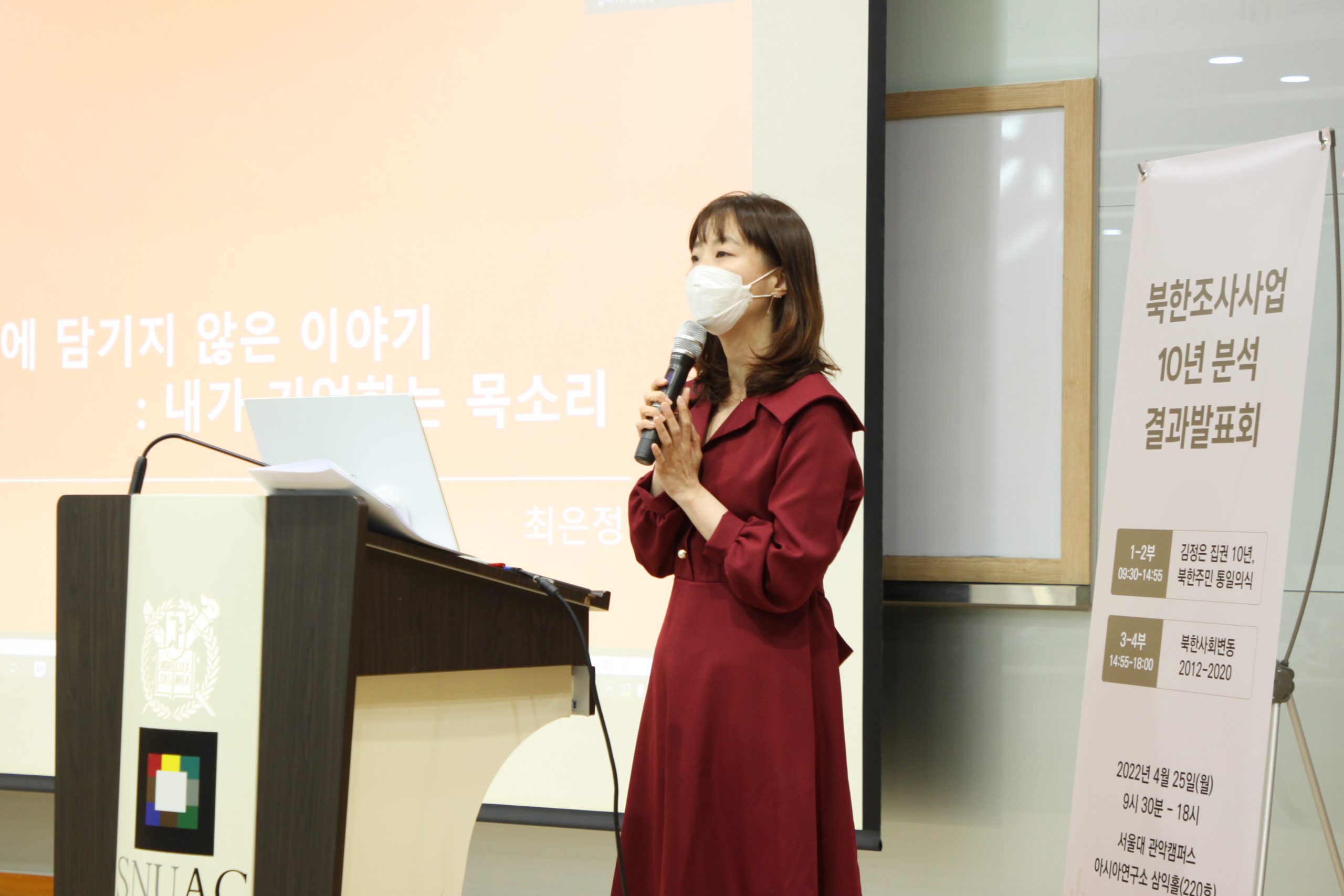
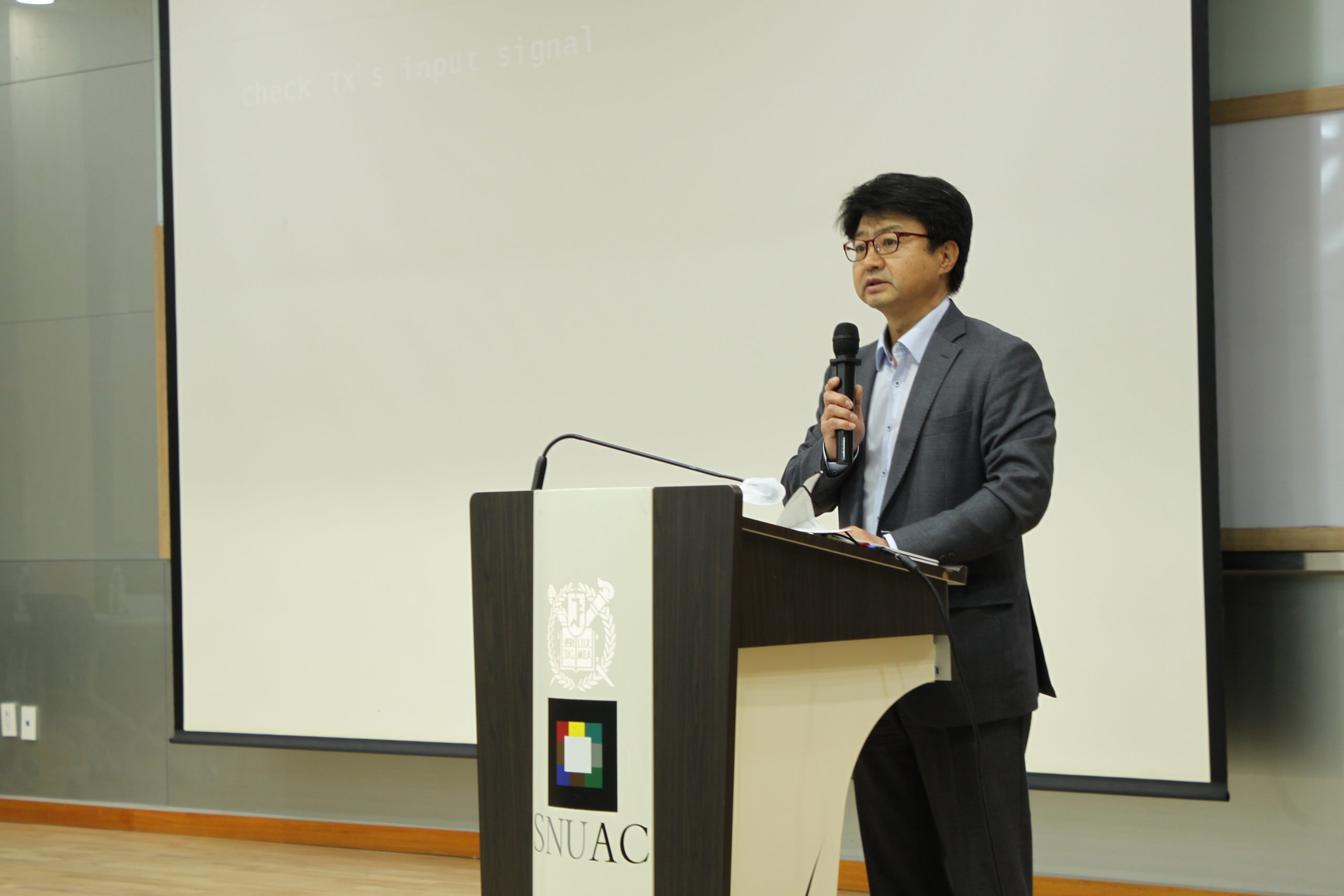
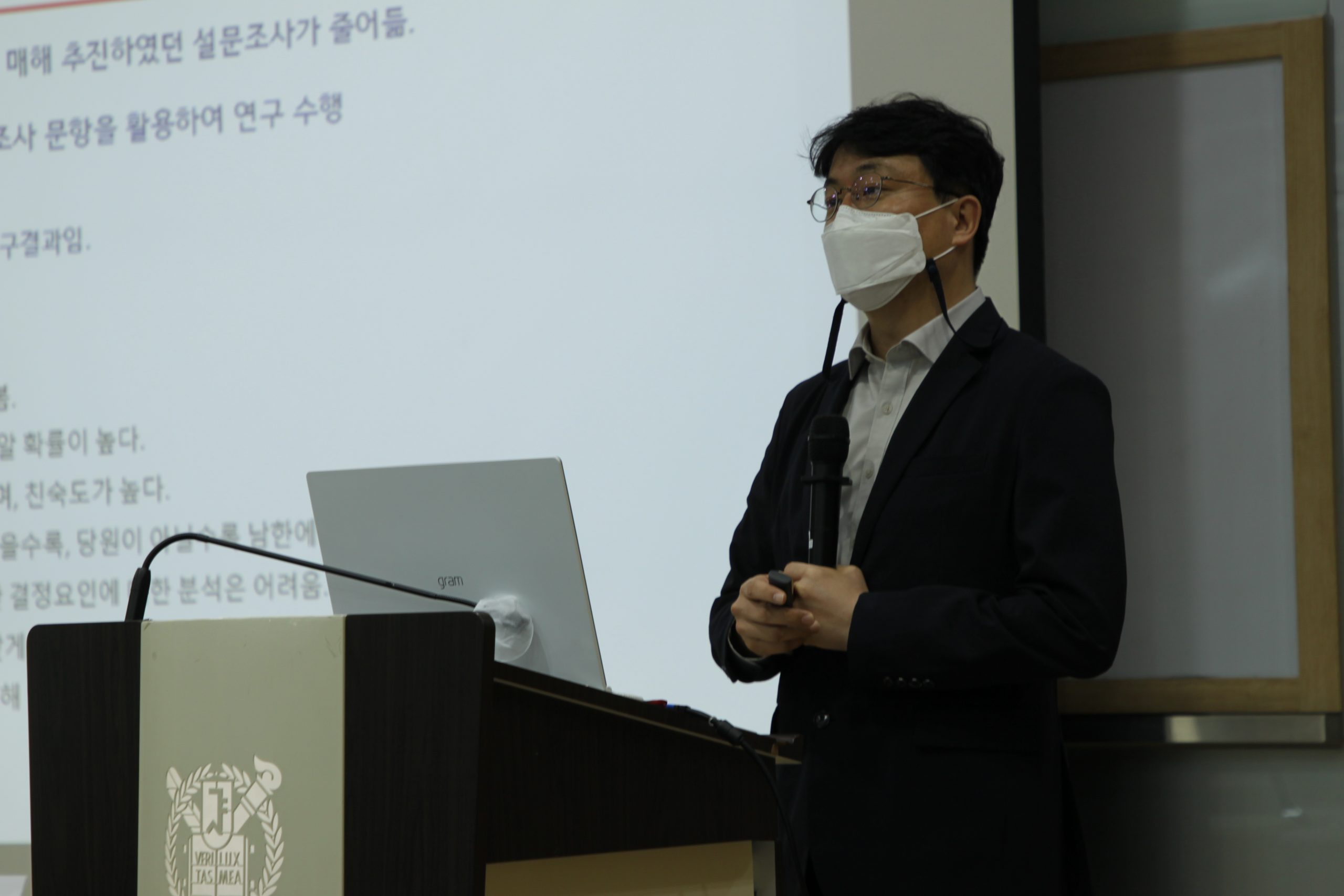
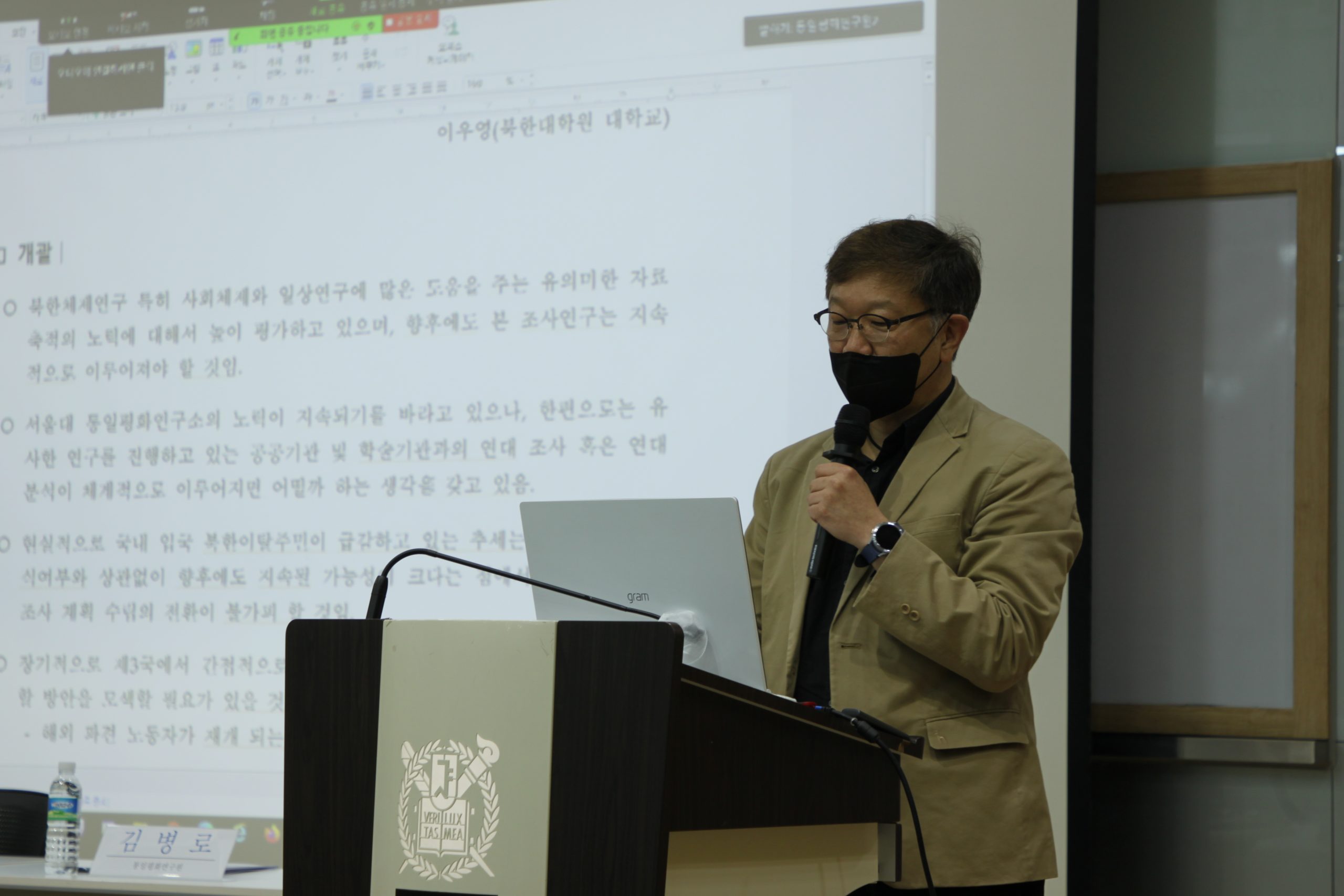
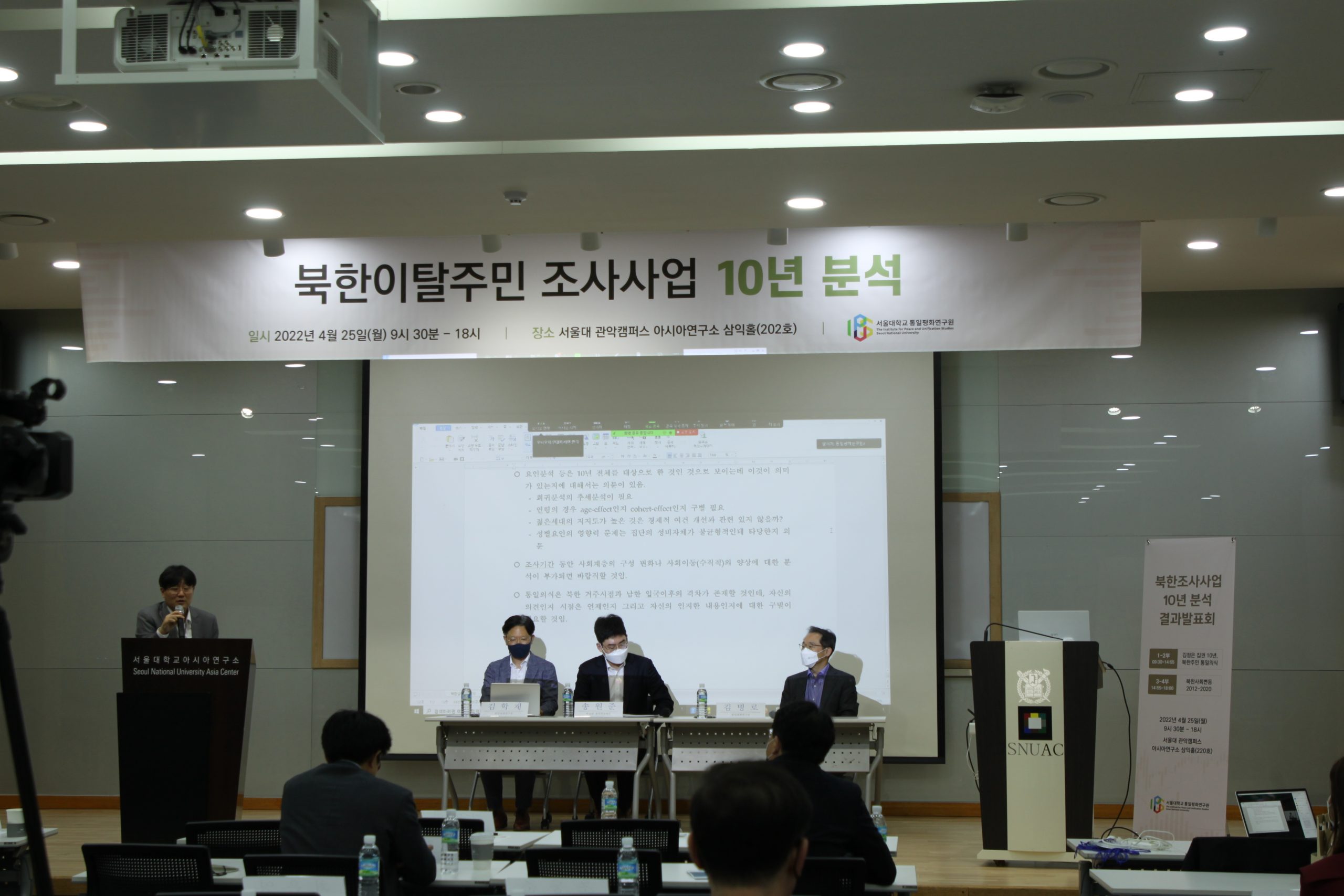
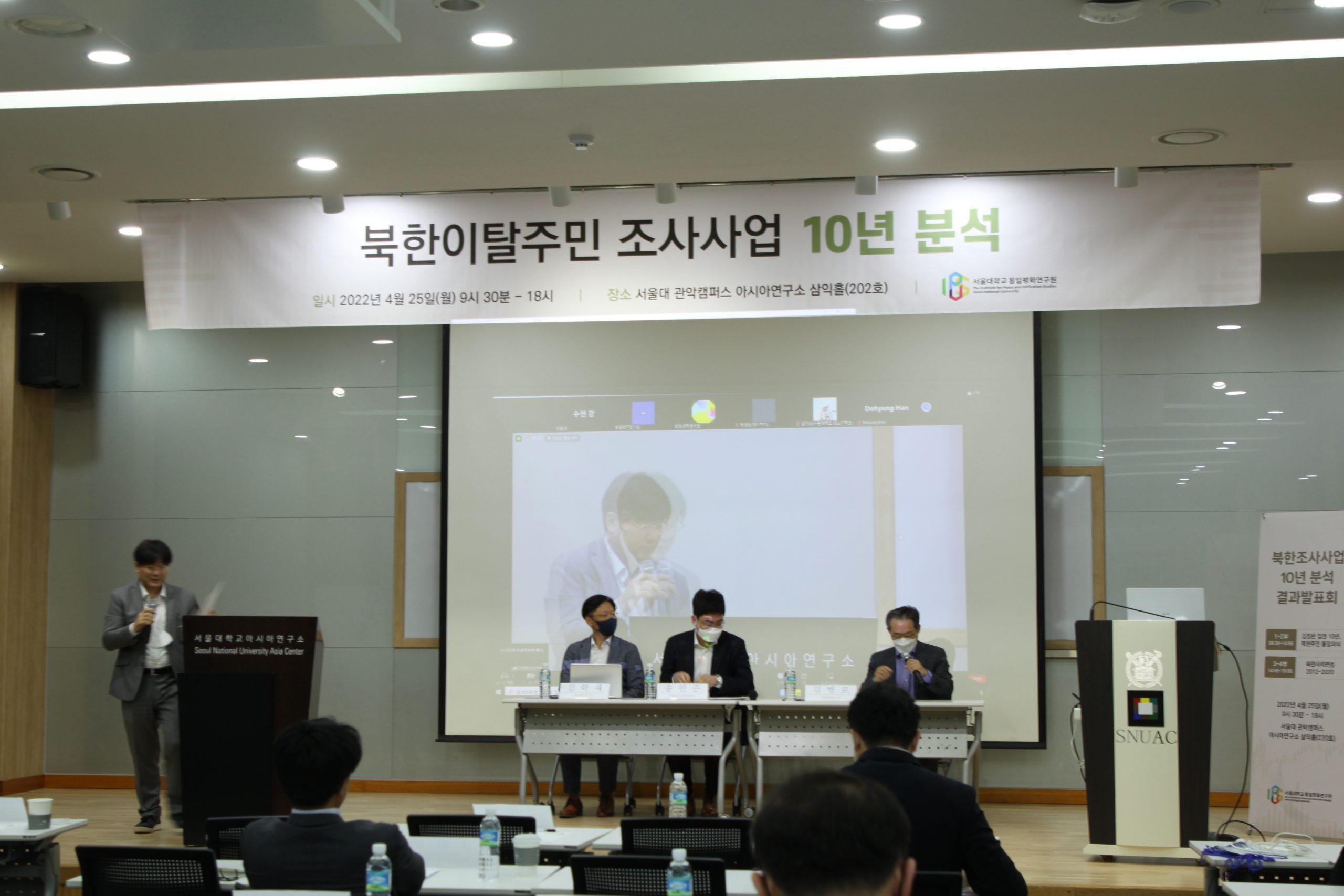
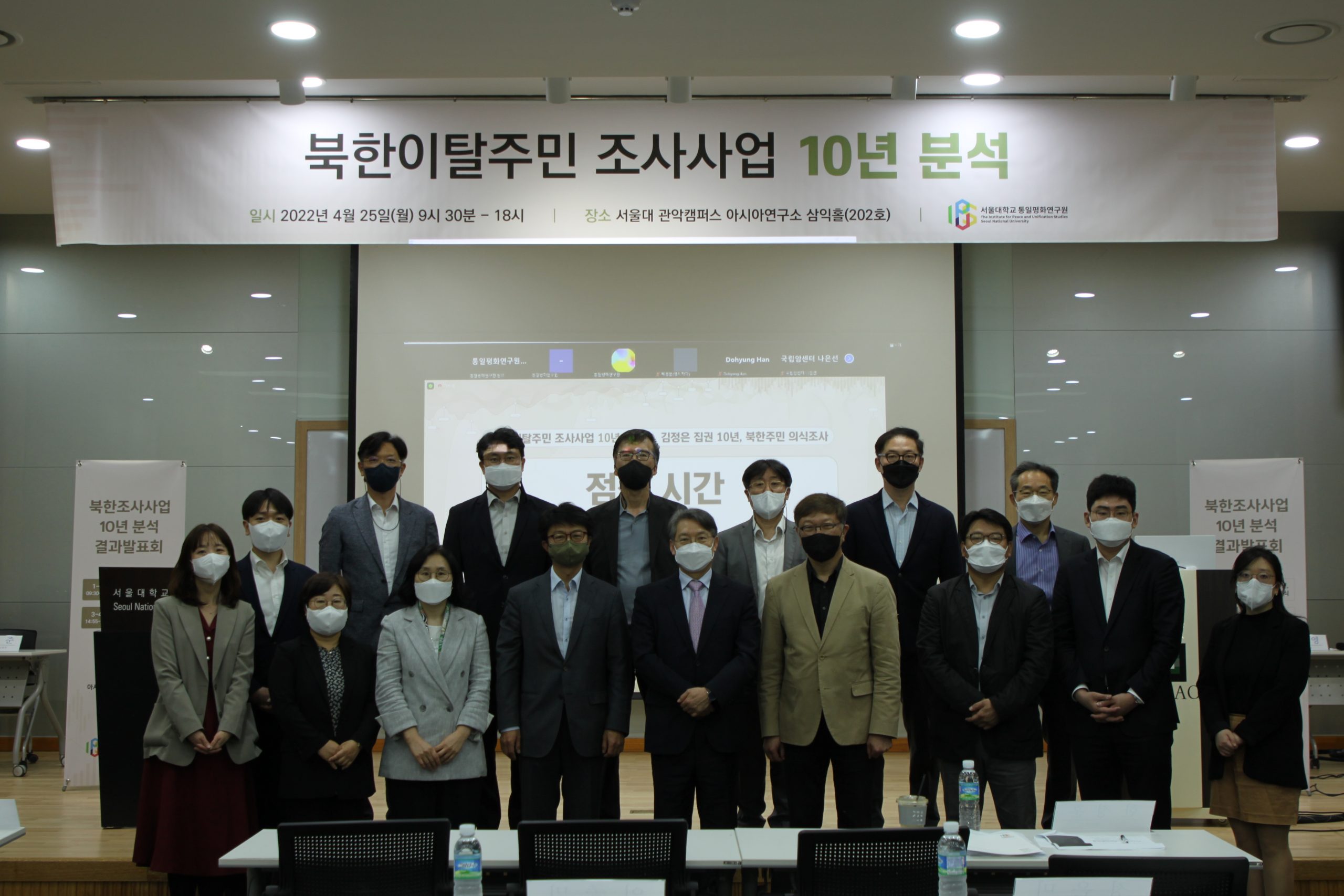
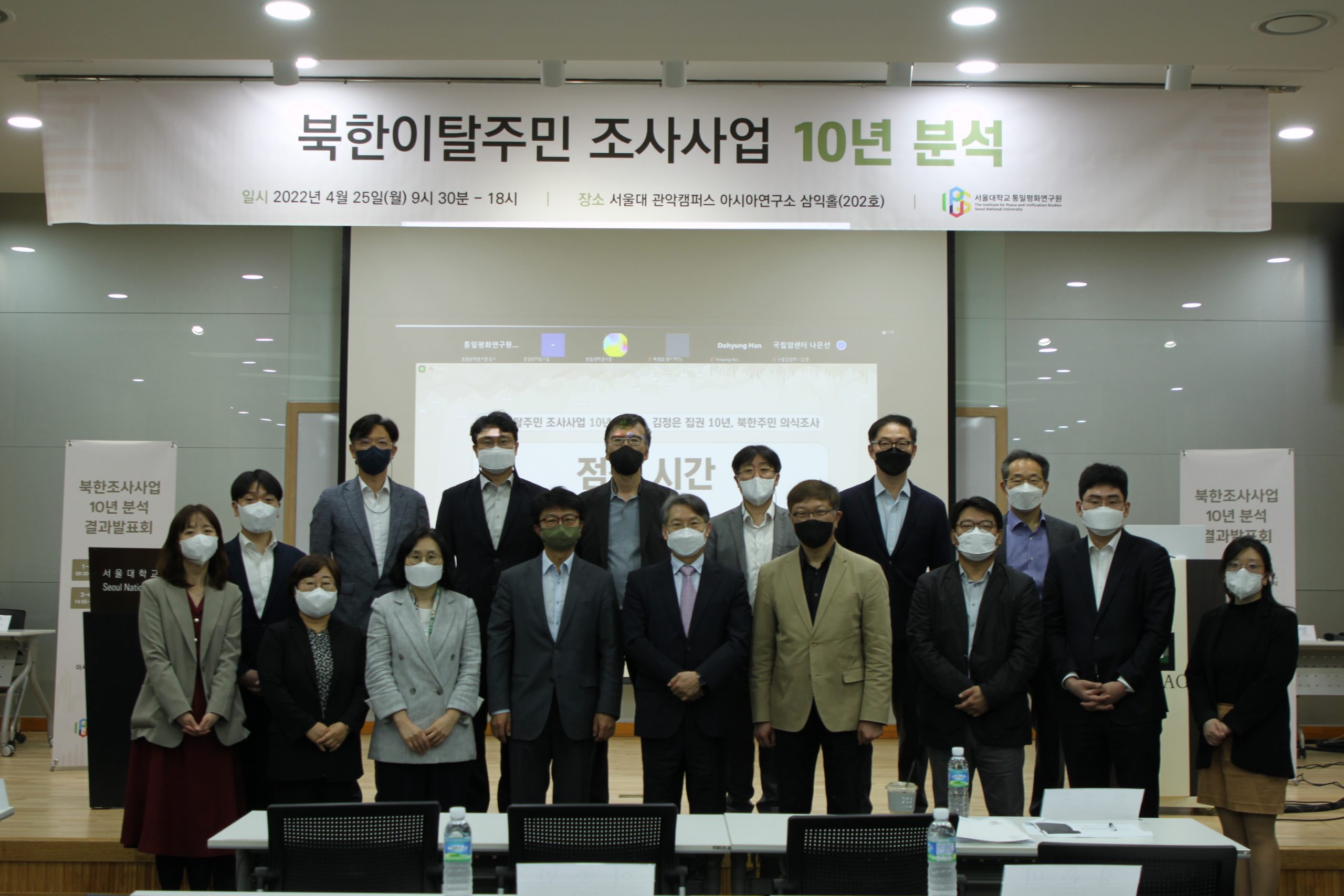
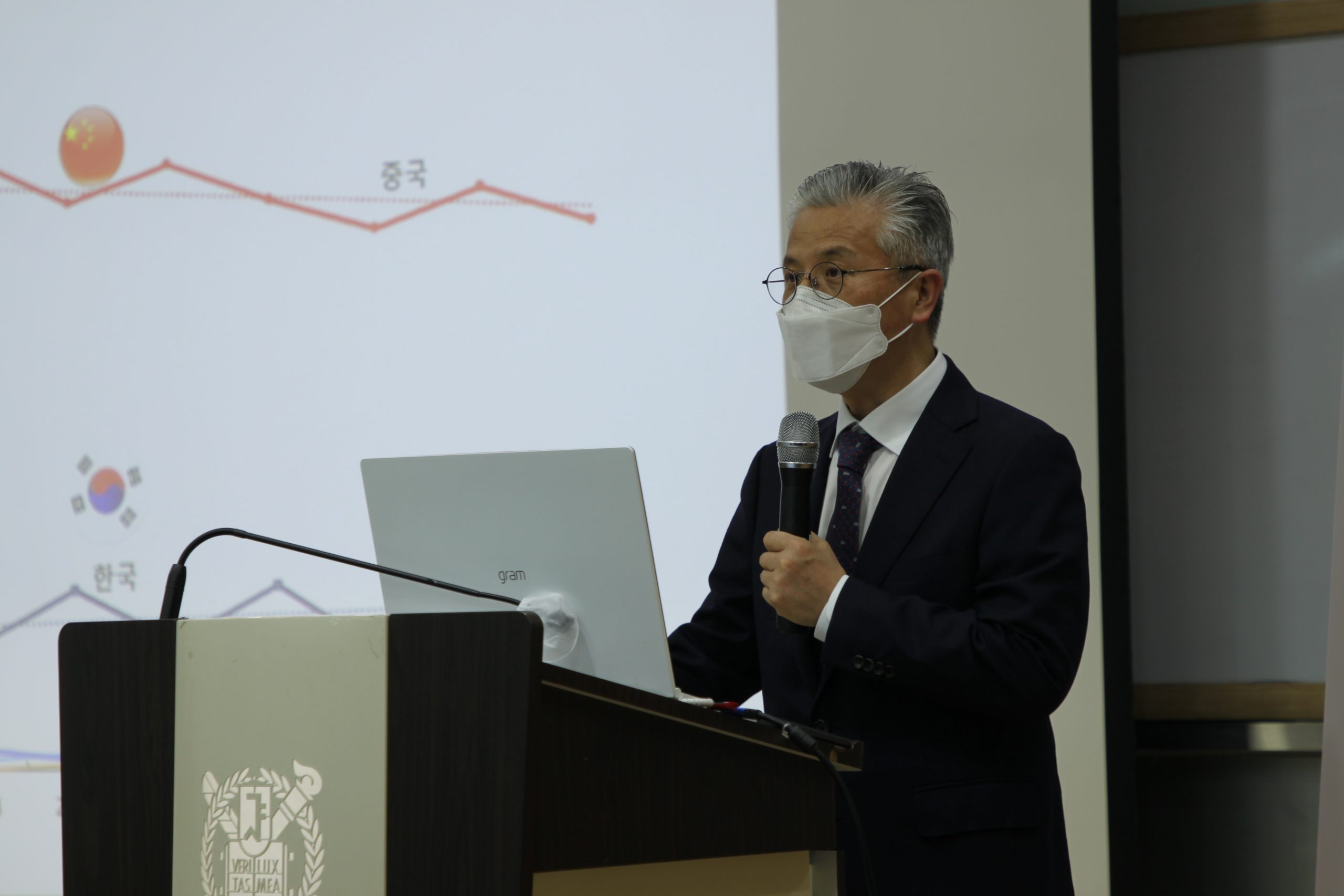
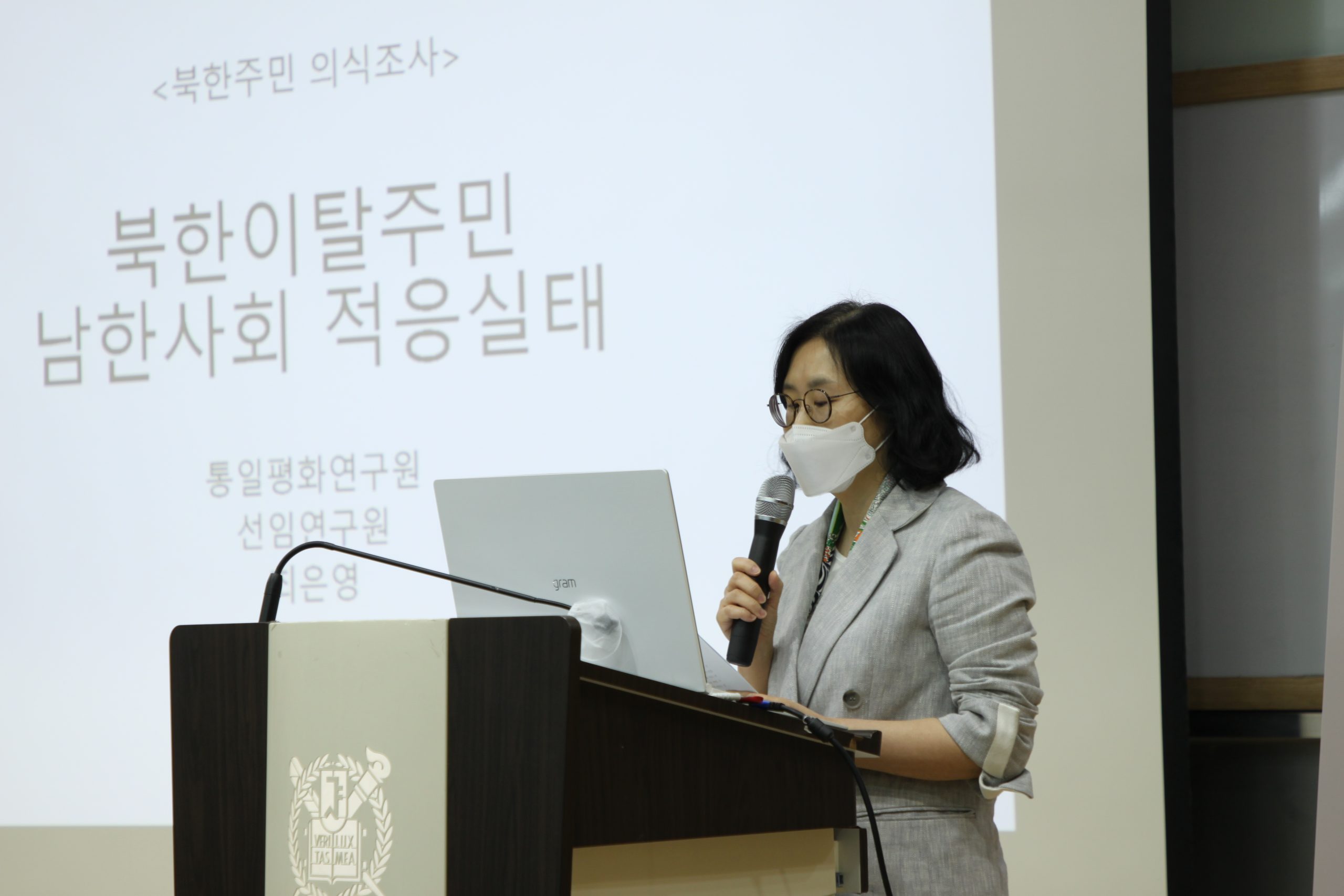
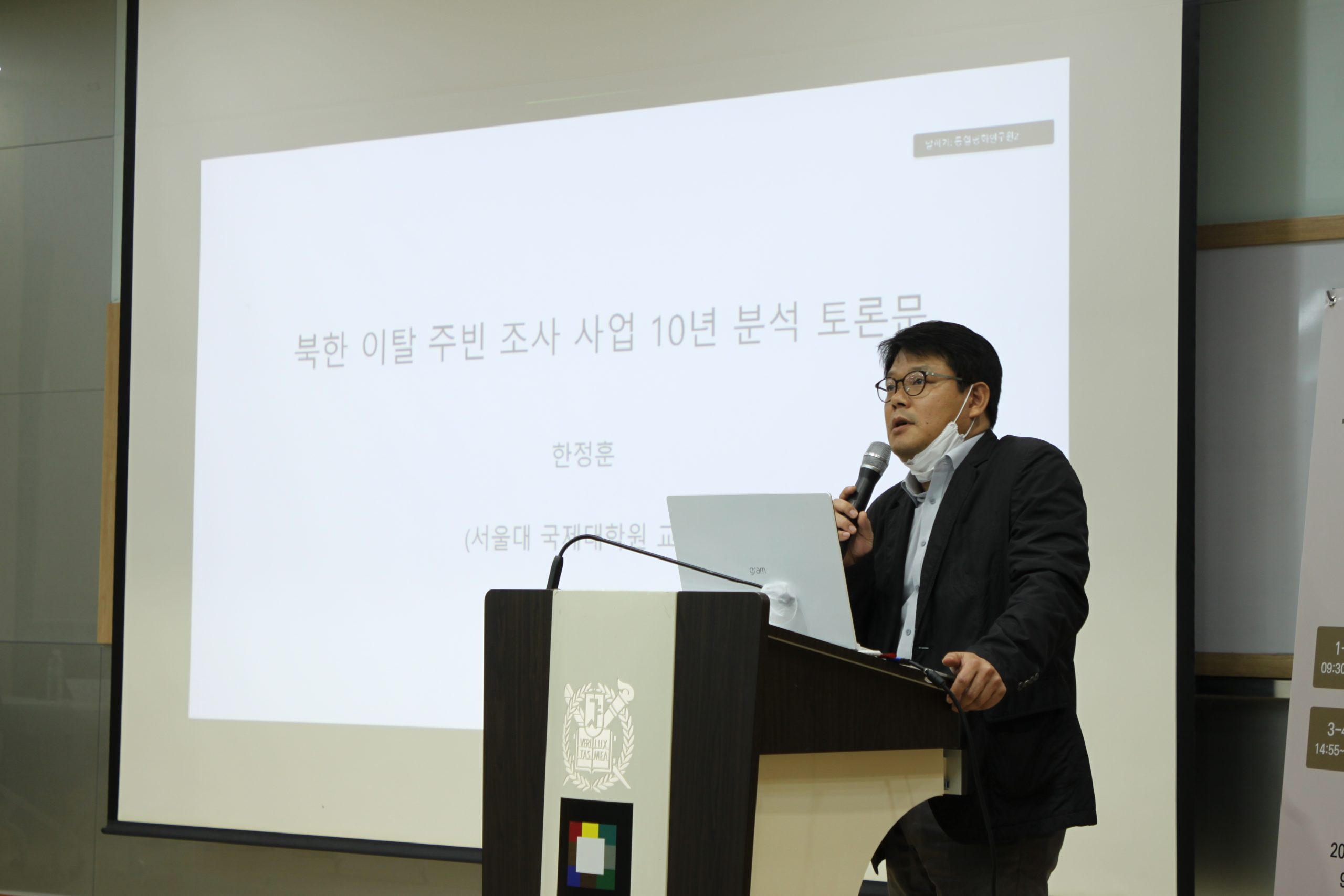
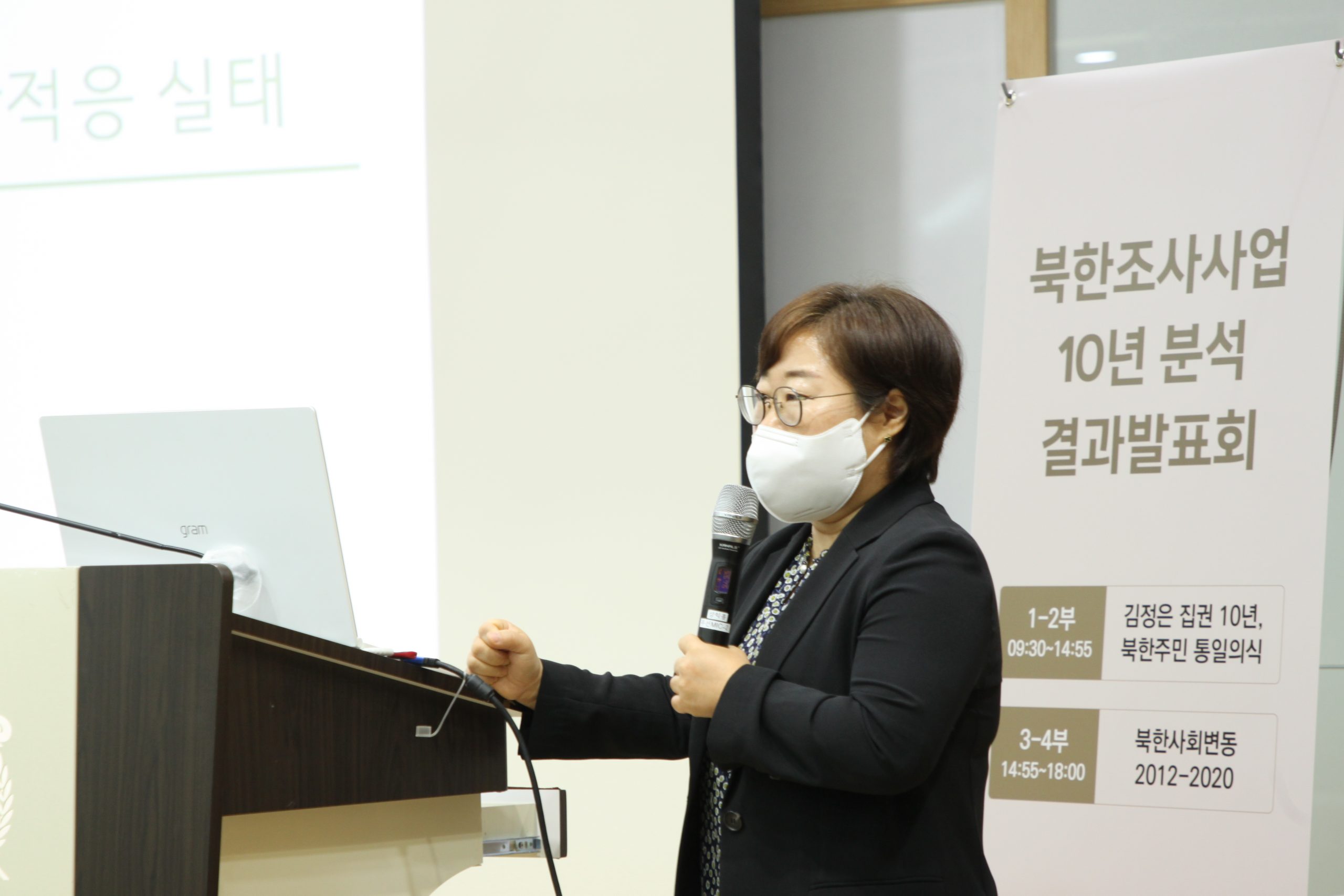
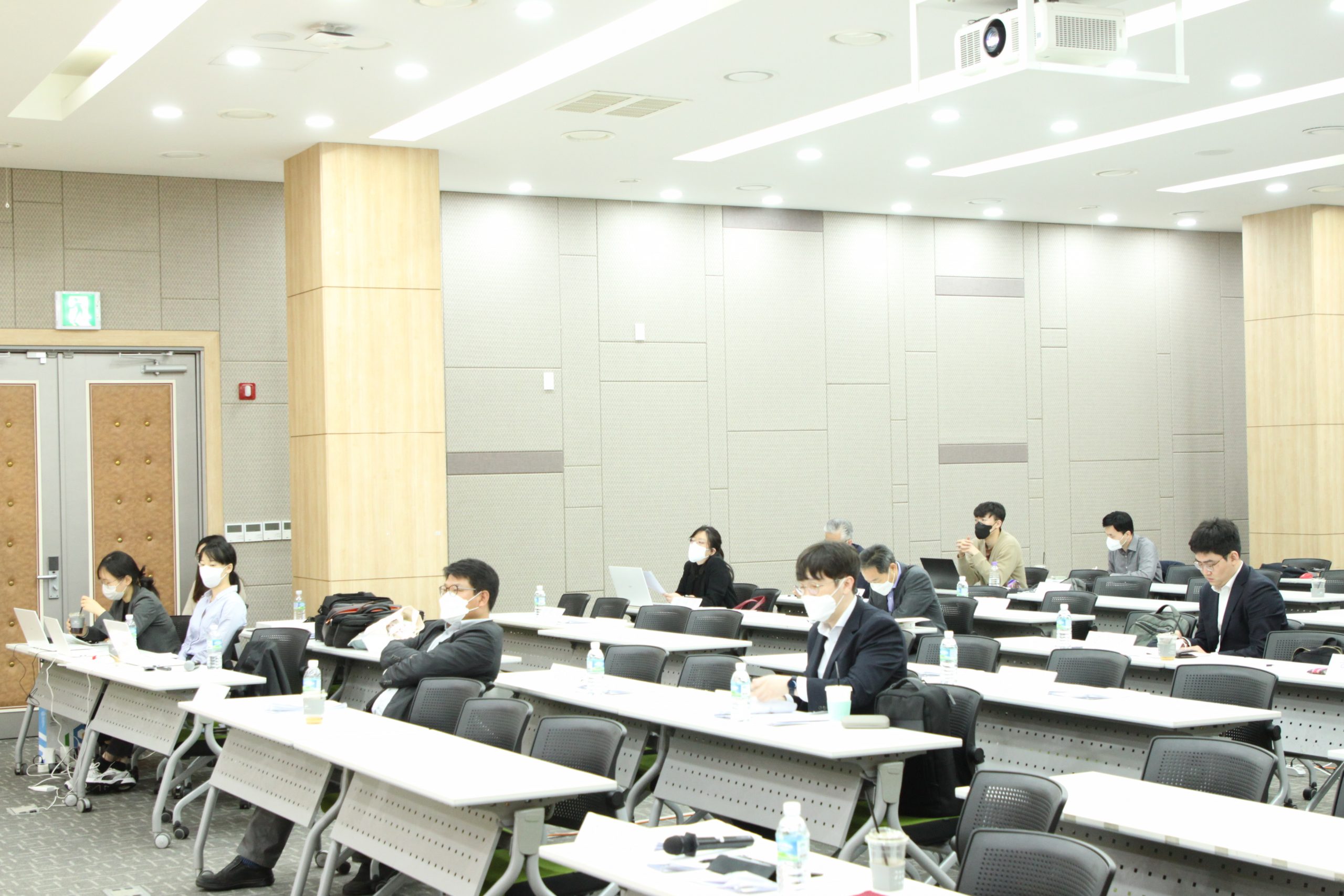
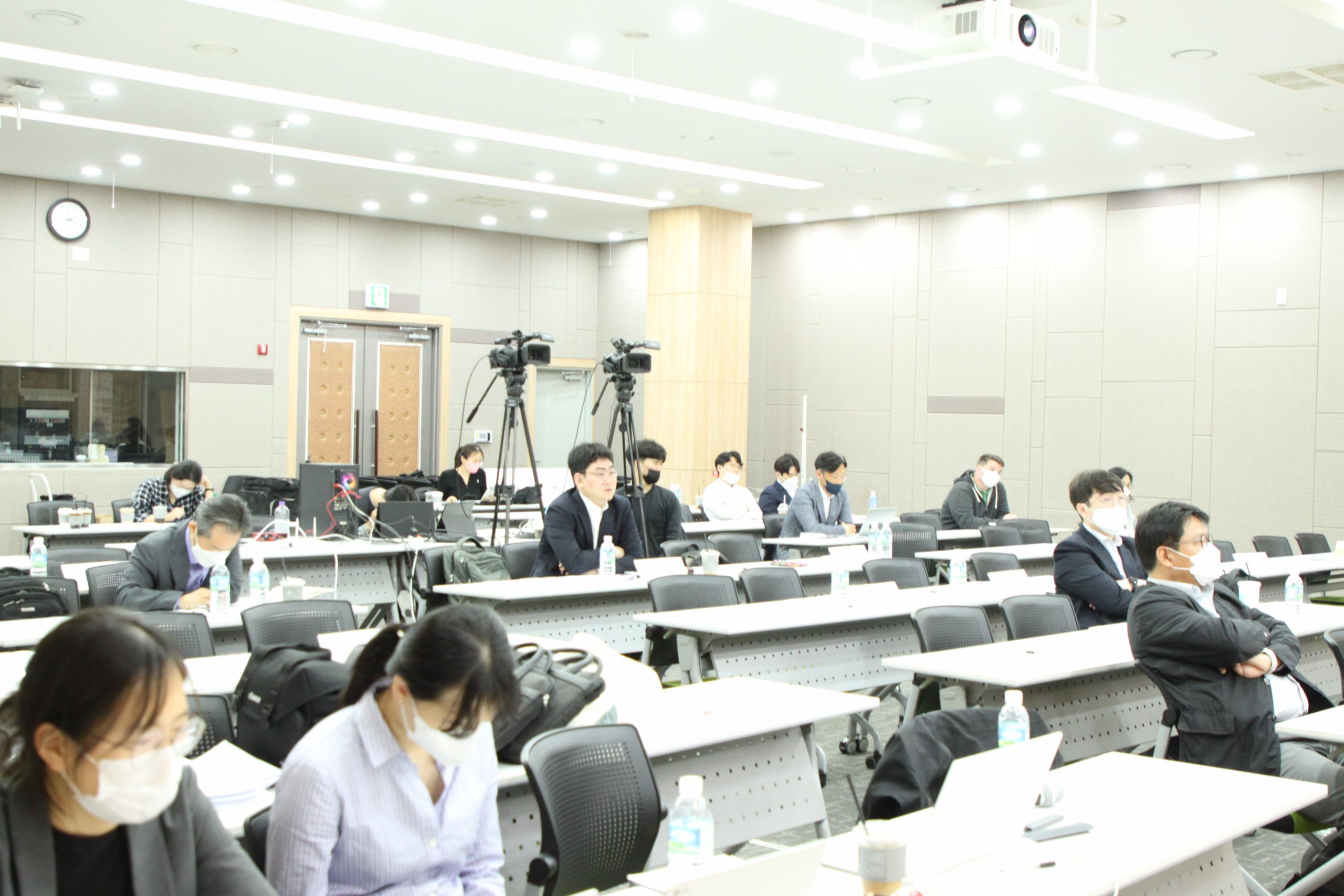
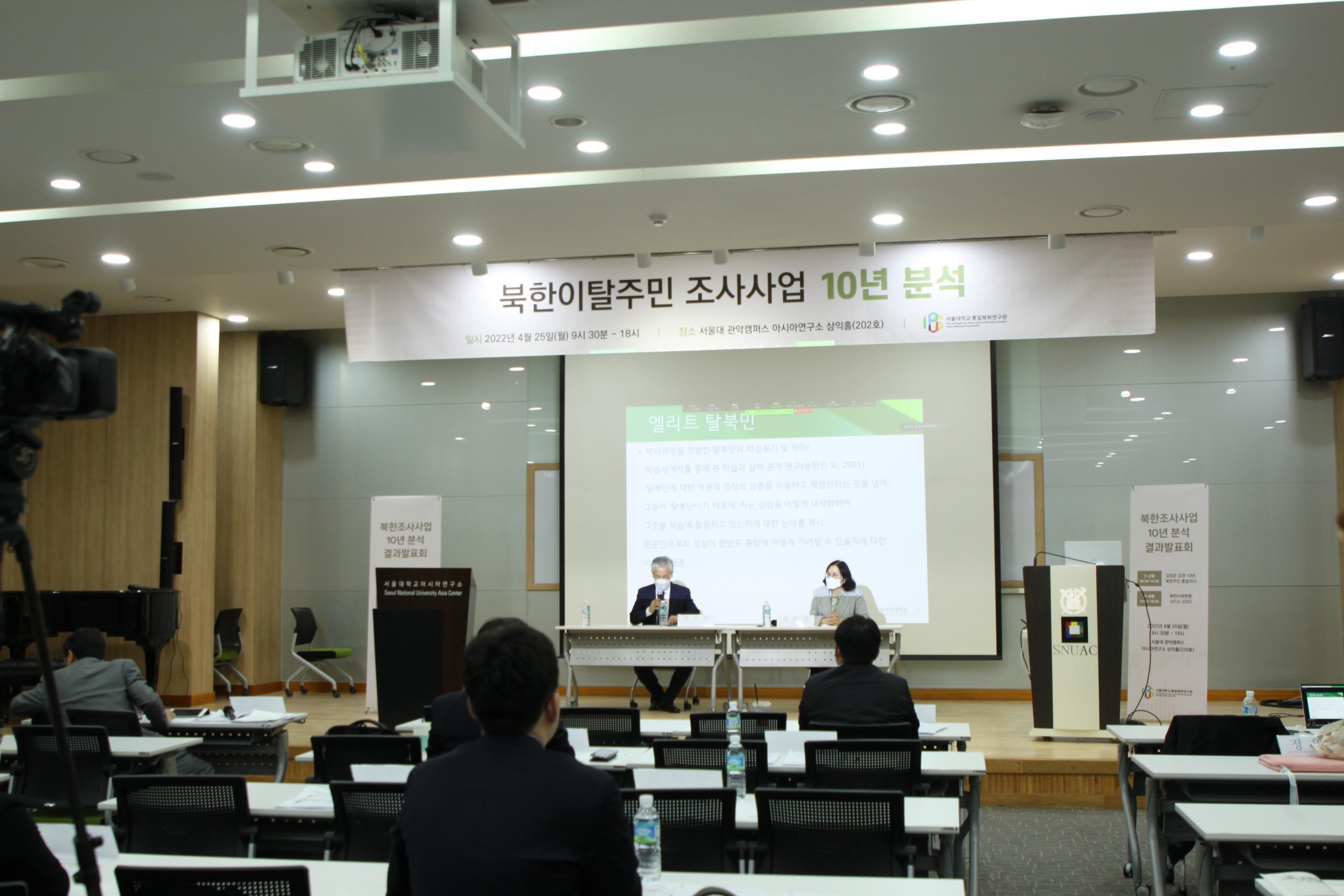
Translated by Lenox Huh
















